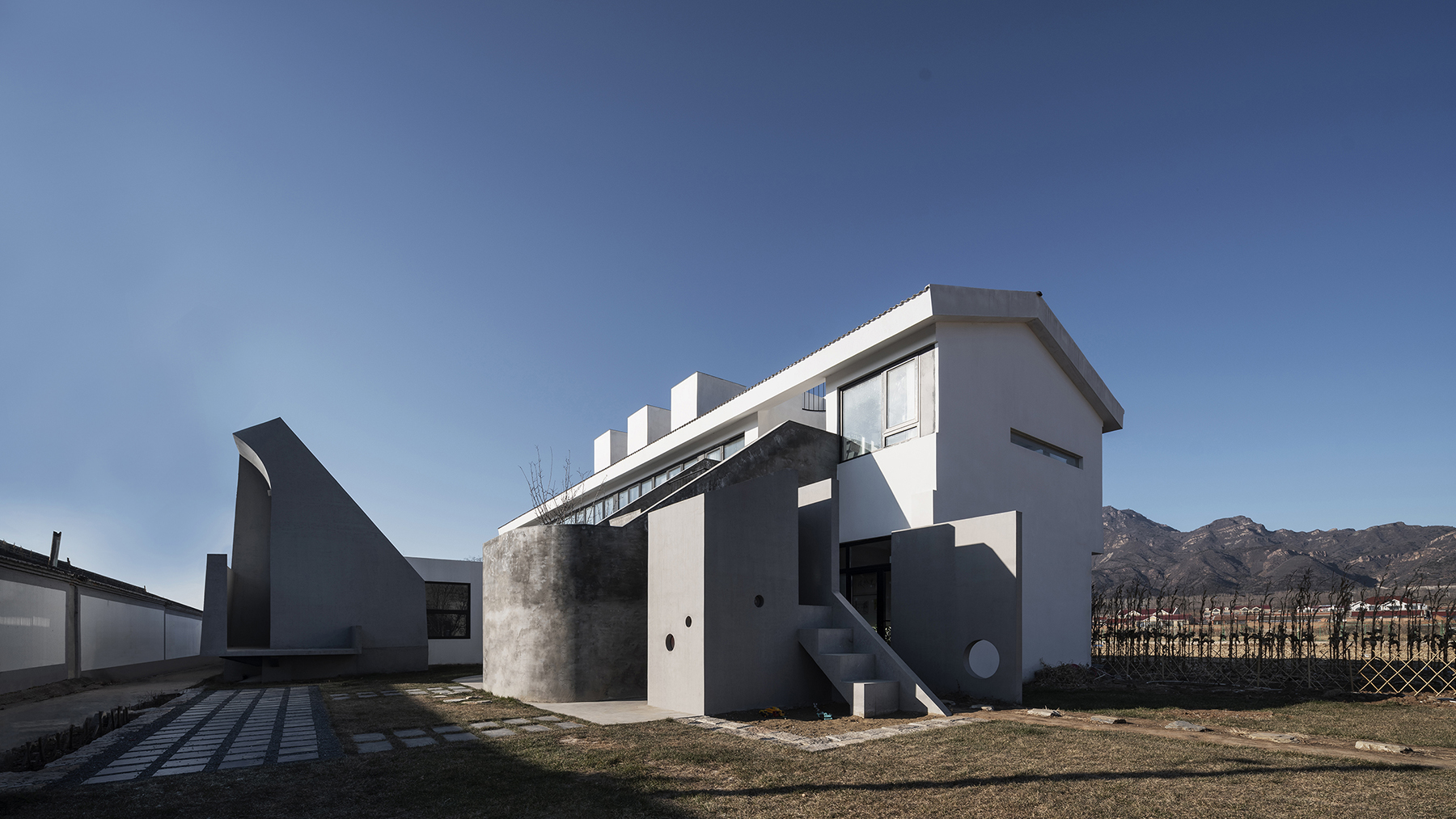
设计单位 礽建筑
项目地点 中国北京
建成时间 2019年12月
建筑面积 576平方米
本文文字由设计单位提供。
面对自然,却着实出现自卑感。生命中总有些瞬间,我希望在一个安全的容器里,向着天空,迎面风雨,对于自卑,有所坦白。
In front of the nature, a sense of self abasement actually appears. There are always moments in the life: I hope that in a safe container, I can face the sky, face the wind and rain, and be frank about the self abasement.
▲ 项目视频 ©礽建筑
从设计之初到完成,在前往场地的几小时行程里,沿途风景让人舒畅的同时,也不断增加着对于自我的反思。到达场地时所感受到的,在那种静态中观察远山与田野的瞬间, “自然”它如此自信、坦然和宁静。想到自我所顾虑的看似复杂却实际简陋的问题,一种把自我交付于天地的感受油然而生。
From the beginning of the design to the completion, during each of the hours of the journey to the site, the scenery along the way is relaxing and at the same time increasing the self-reflection mood. In the moment when you arrive and observe the distant mountains and the fields in that static state, "Nature" unfolds here so confidently, calmly and silently. Thinking of the seemingly complex but actually simple problems that I am concerned about, I always have a strong feeling of surrendering myself to the heaven and the earth.
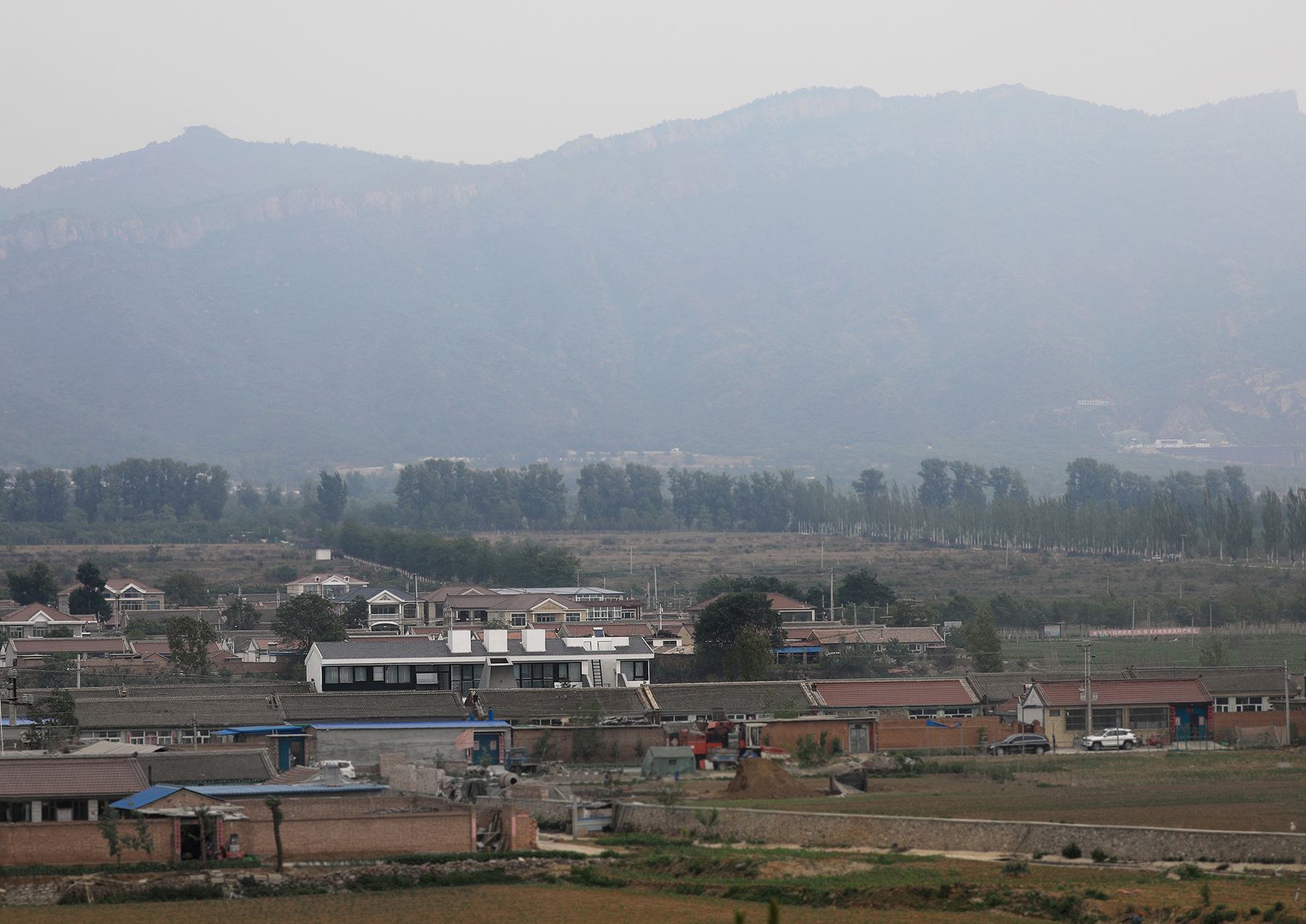
2018年起,我们设计了位于北京市延庆区香营乡后所屯村的风拾光居。场地规划包括礼堂、儿童空间及居住空间。礼堂和儿童塔作为不同时间节点的空间被并置于同一个空间线中,隐喻人生不同阶段,并为当地带来别样记忆。
Starting in 2018, the RENGARCH designed a residential building in Housuotun Village, surrounded by mountains in Yanqing district of Beijing. The site plan included a chapel, a tower of childhood and an accommodation area. Regarded as different time points, the chapel for adults and the tower of childhood coexist on the same space line, metaphorizing the growing up of human being and bringing a unique memory to the local village.
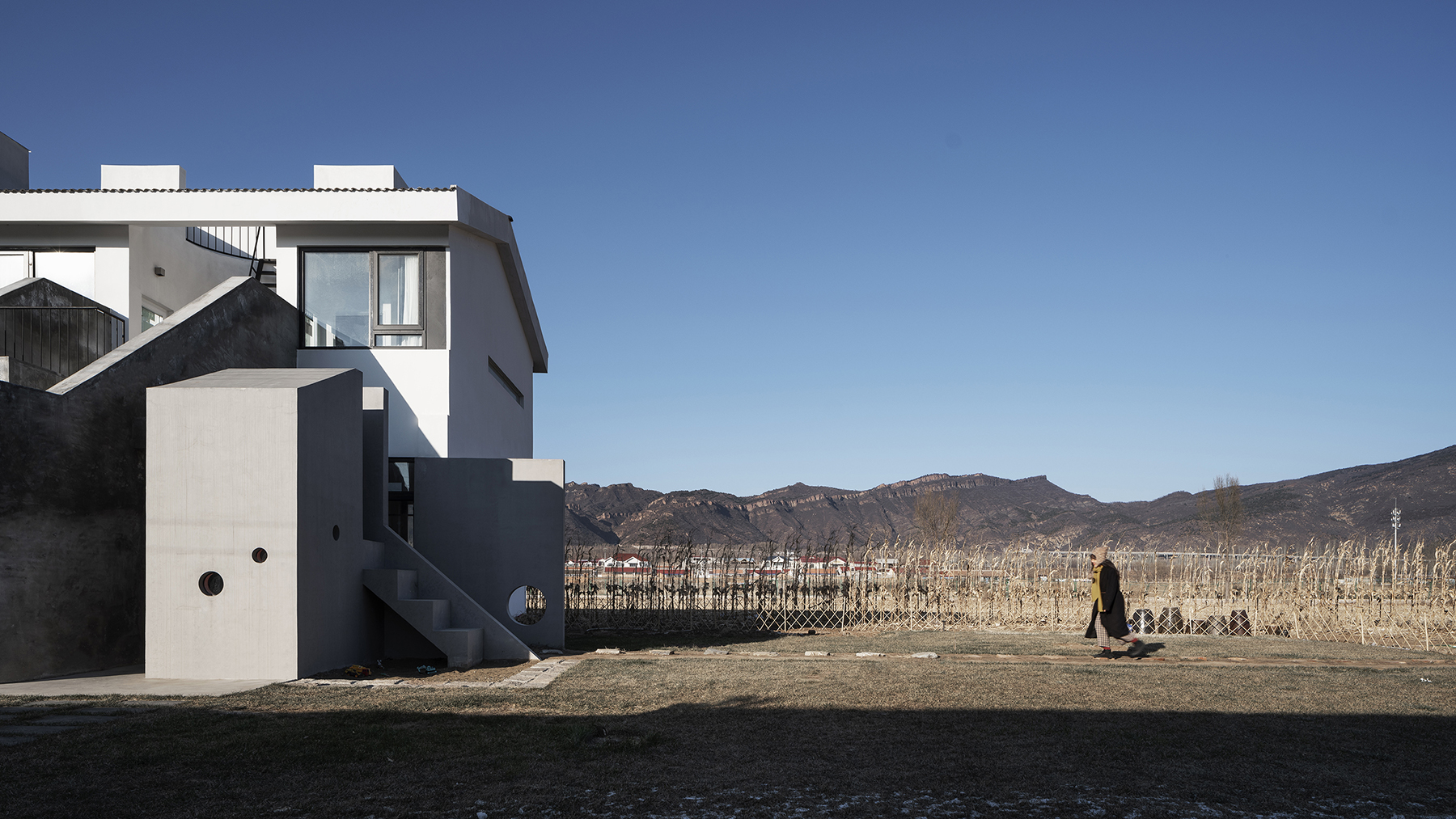
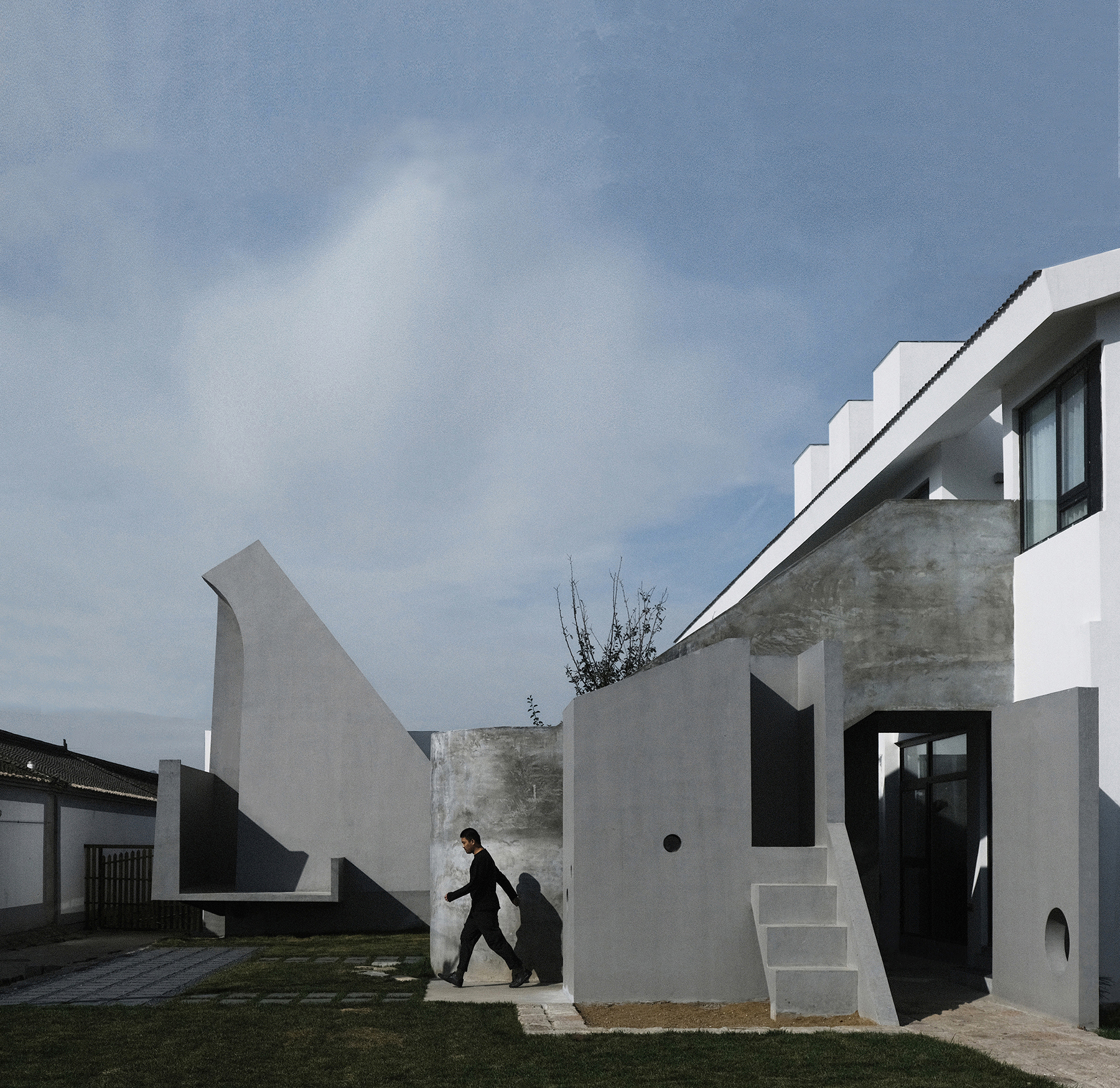
自卑礼堂
村里有个小山坡,能看到村子的样貌,一个“光烟囱”插入层层屋面。弧墙水平向所指的目的即礼堂,上小下大向南倾斜。顶部朝南的开口成为了光的通道, 光通过开口由上至下进入到空间内部。光可到达的地方,雨水也可到达,顺着墙面滑落,最终于底部汇集,并向外流出。上下洞口形成了内部循环,成为了风的通道。在礼堂内部,思考,抑或仰望后,低头而出。
There is a small hill which commands an overall view of the village, as the chapel inserts into layers of grey tiles on the rooftop like a chimney. The chapel, pointed by the arc wall and regarded as the center of the overall layout, is actually an architecture inclining from north to south, small on top and big on bottom. With a hole towards south on the top opening a channel, sunlight enters the inner space from top to bottom. Wherever sunshine can reach, so does the rainwater, which slowly slides down along the hogging-up wall, gathers at the bottom and flows out. The upper and lower openings form an internal circulation and become a passage for wind. Visitors can contemplate, meditate or lookup to the sky and arrive at the outdoor platform through a low door.
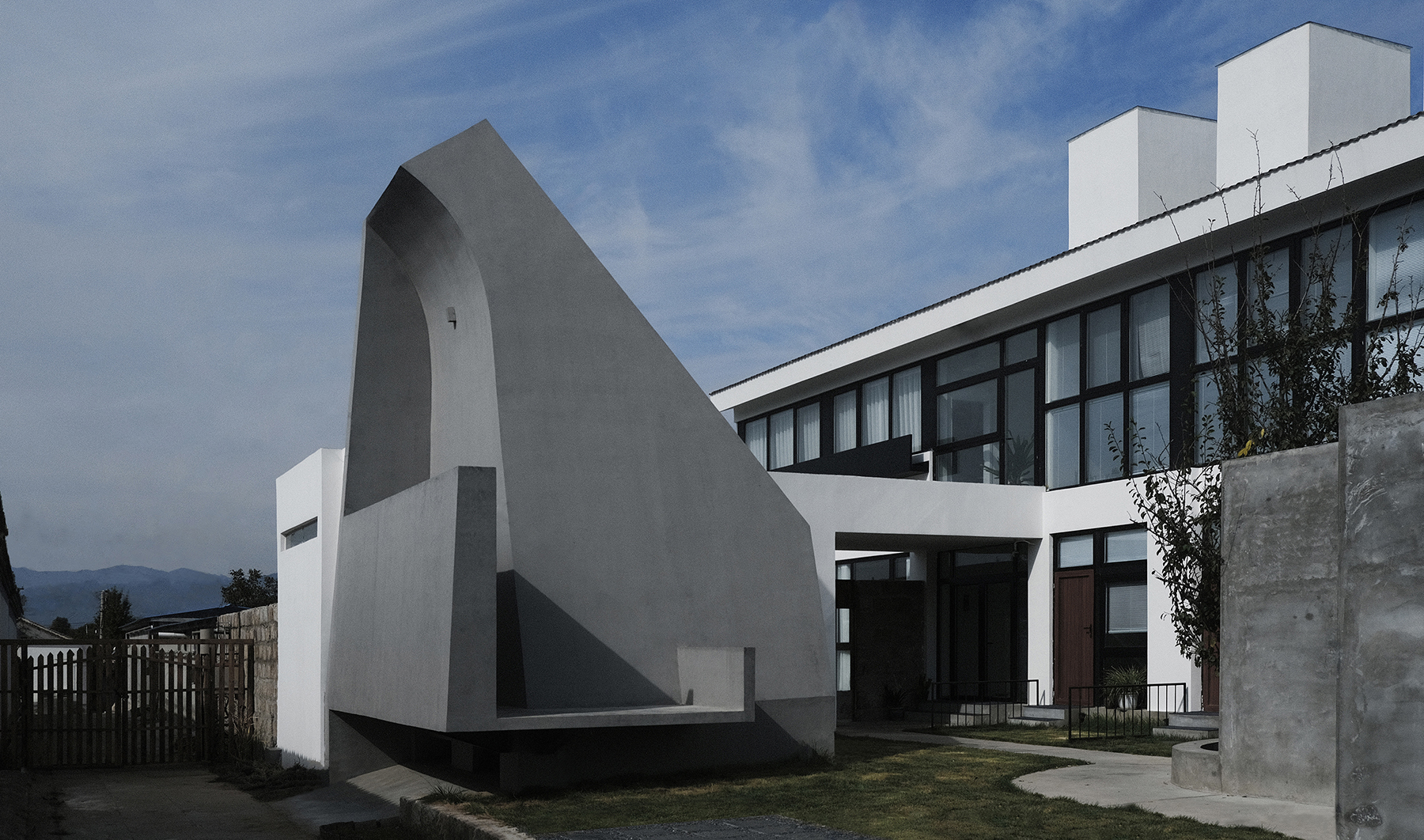

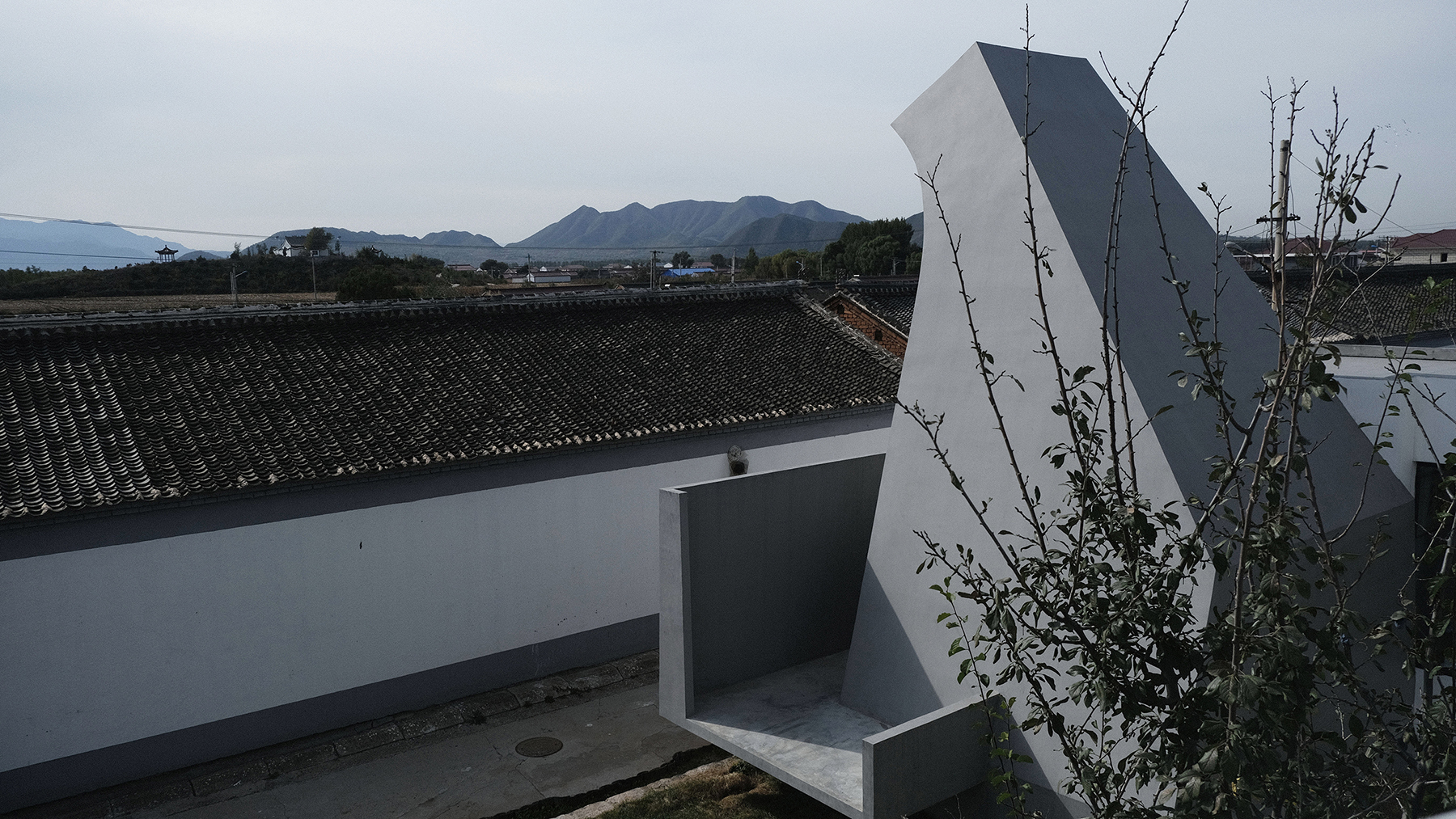
竖起的室外高墙将氛围继续延续,转折,以抬高的室外平台做路径的空间收尾,并引导视线向东延伸。光、雨、风在紧缩的容器里似乎被放大,感官中更大的风雨声,还有白天到夜晚的光影流转,让人感慨,如开篇所说:面向自然,自我交付。
The erected outdoor wall extends the space atmosphere and a lifted platform marks the end after a turn, leading your eyes to the east. Light, rain, and wind seem to be amplified in a tightly closed space container. The greater sound of rain and wind in the senses, the light and shadow flowing from day to night, make people feel nature, as the article said at the beginning: facing nature, facing yourself.
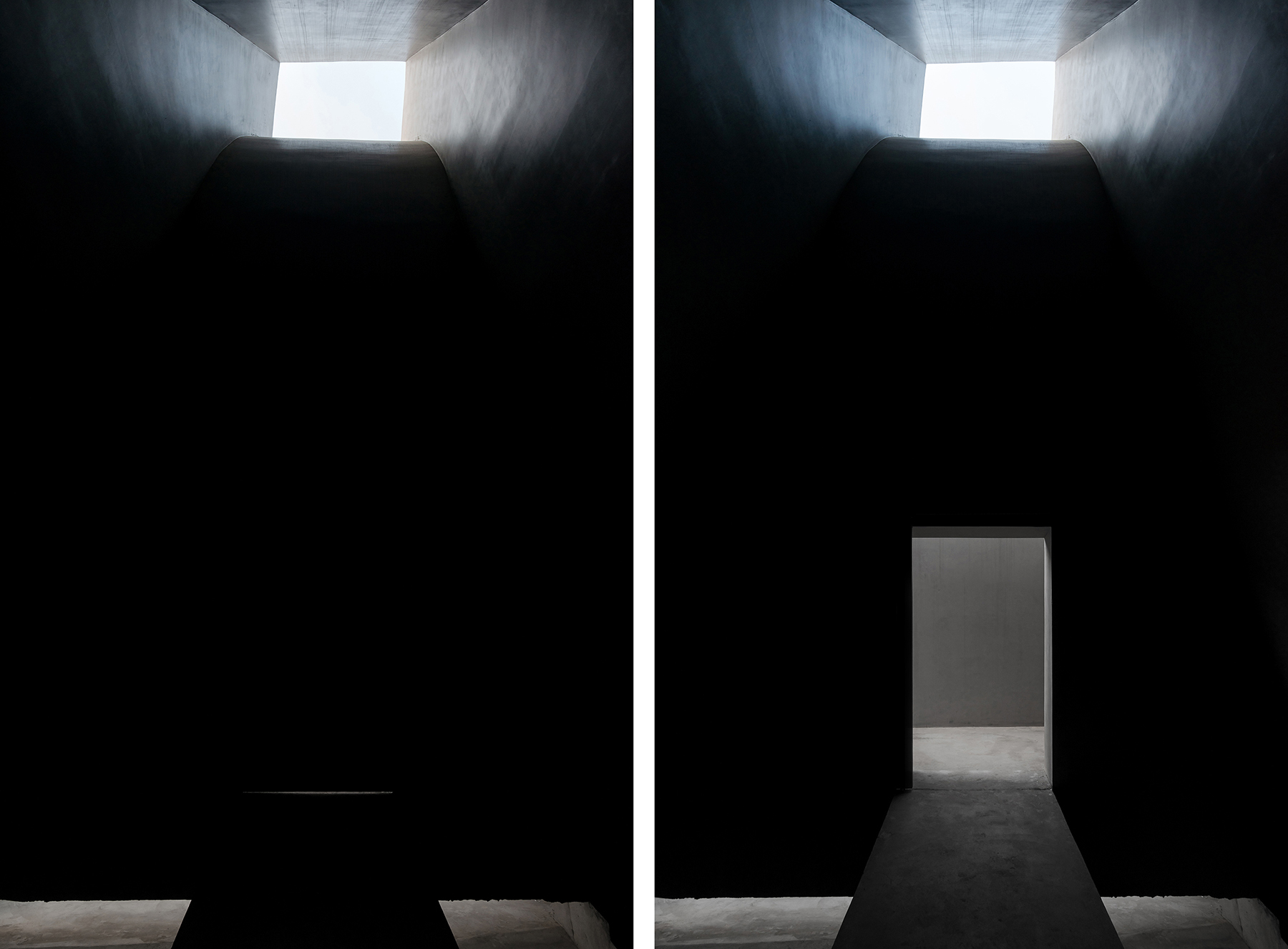
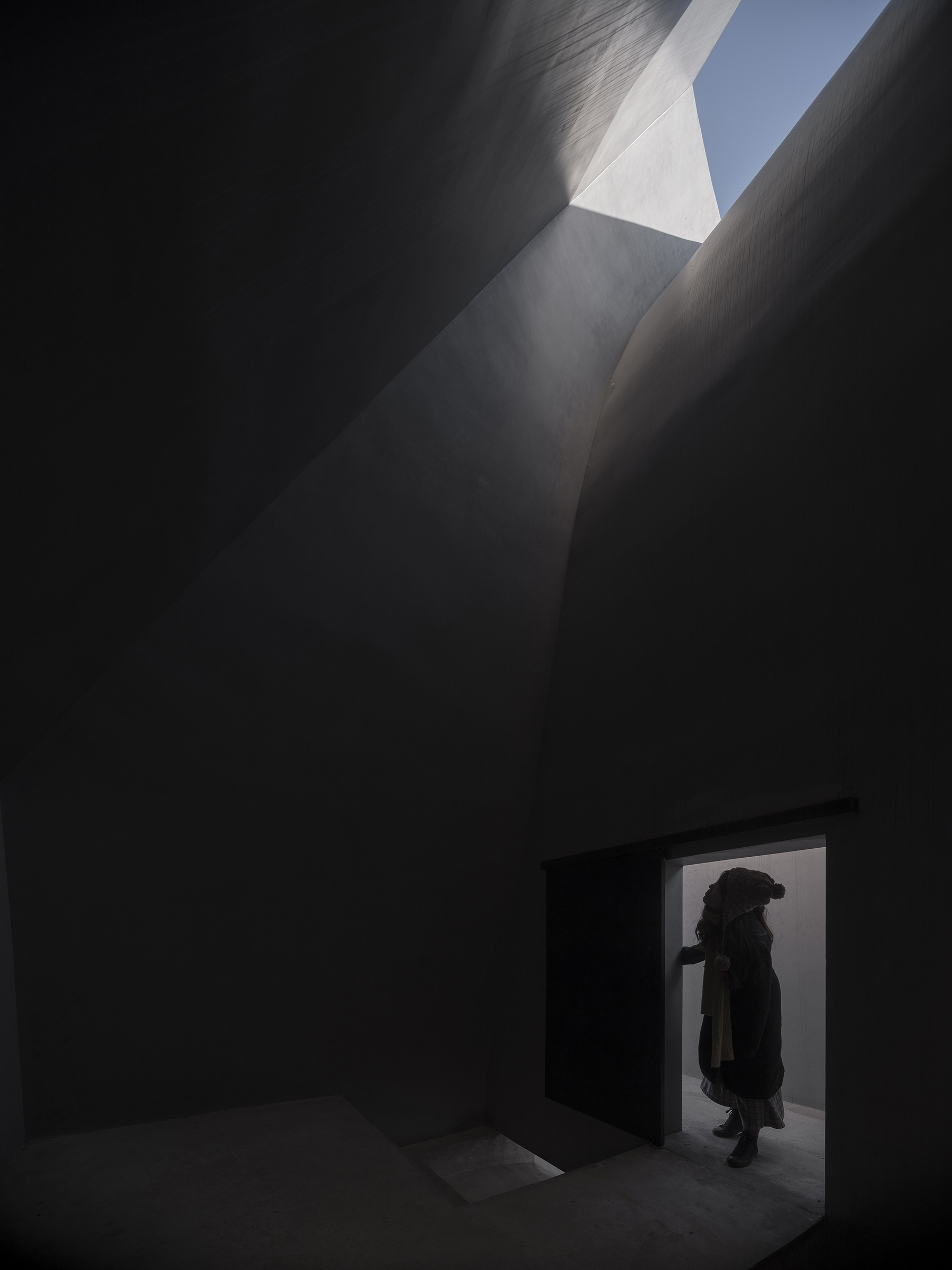
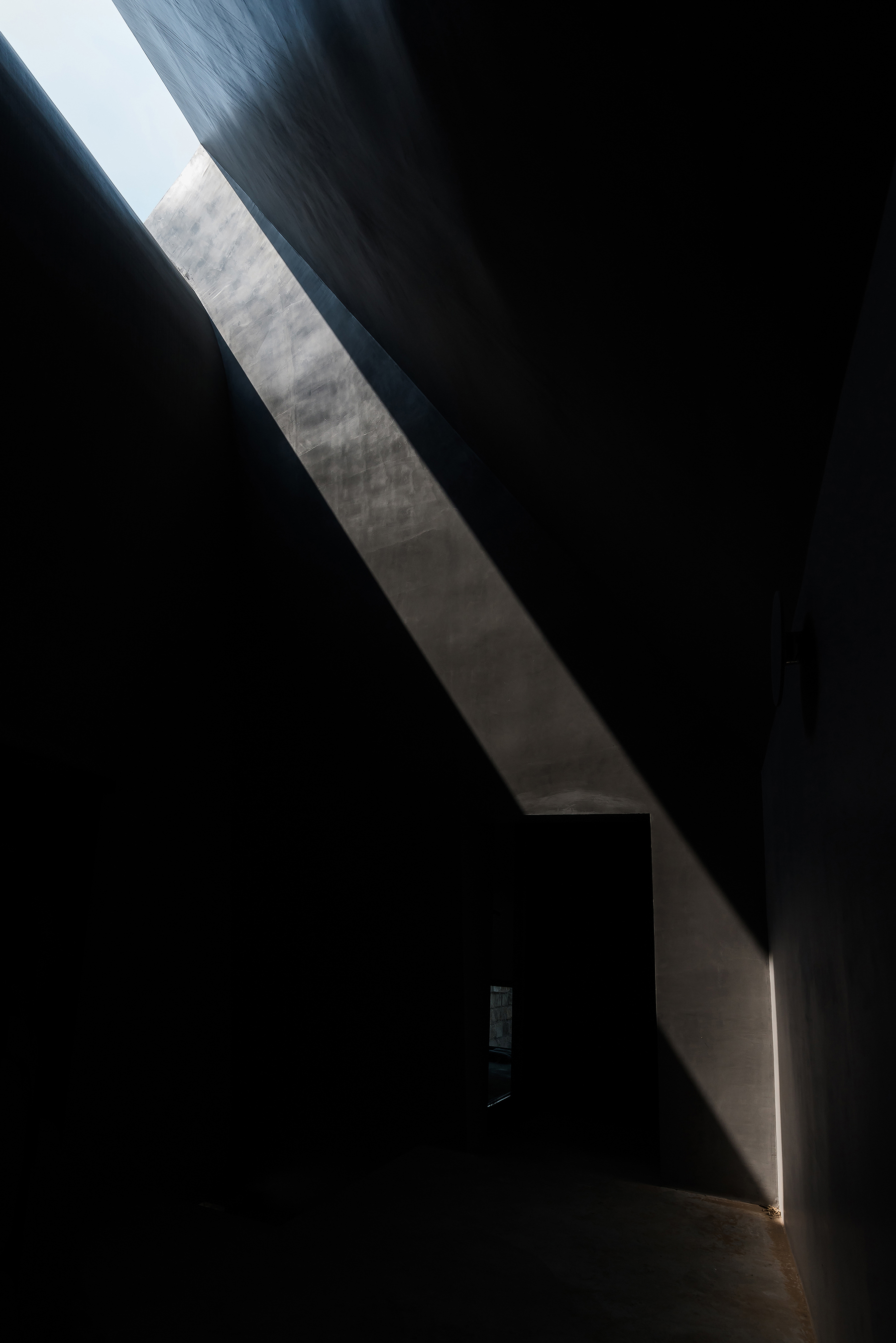
儿童塔
礼堂中,光与雨的洗礼接近于成年世界,而儿童塔更像是故事的起点。儿童塔是一个双向出入的空间,内部是供儿童攀爬的小世界,并用五彩的涂料粉刷,空间尺度有意识地为儿童而建立,小圆窗洞口的设计成为儿童向外部世界窥探的通道。外部阶梯下则是供孩子玩耍的沙坑。
Different from the experience of sunlight and rainwater in the chapel, Tower of Childhood is more like the start point of a story which located in front of the east entrance. Like a children's slide, the tower can be experienced up and down. Below the outdoor stair is a sand pit allowing kids to play around. Inside the tower, colorfully painted, is a small world where kids can climb willfully. Spatial scale is intentionally built for children and the design of rounded window provides a channel to look into the exterior world.
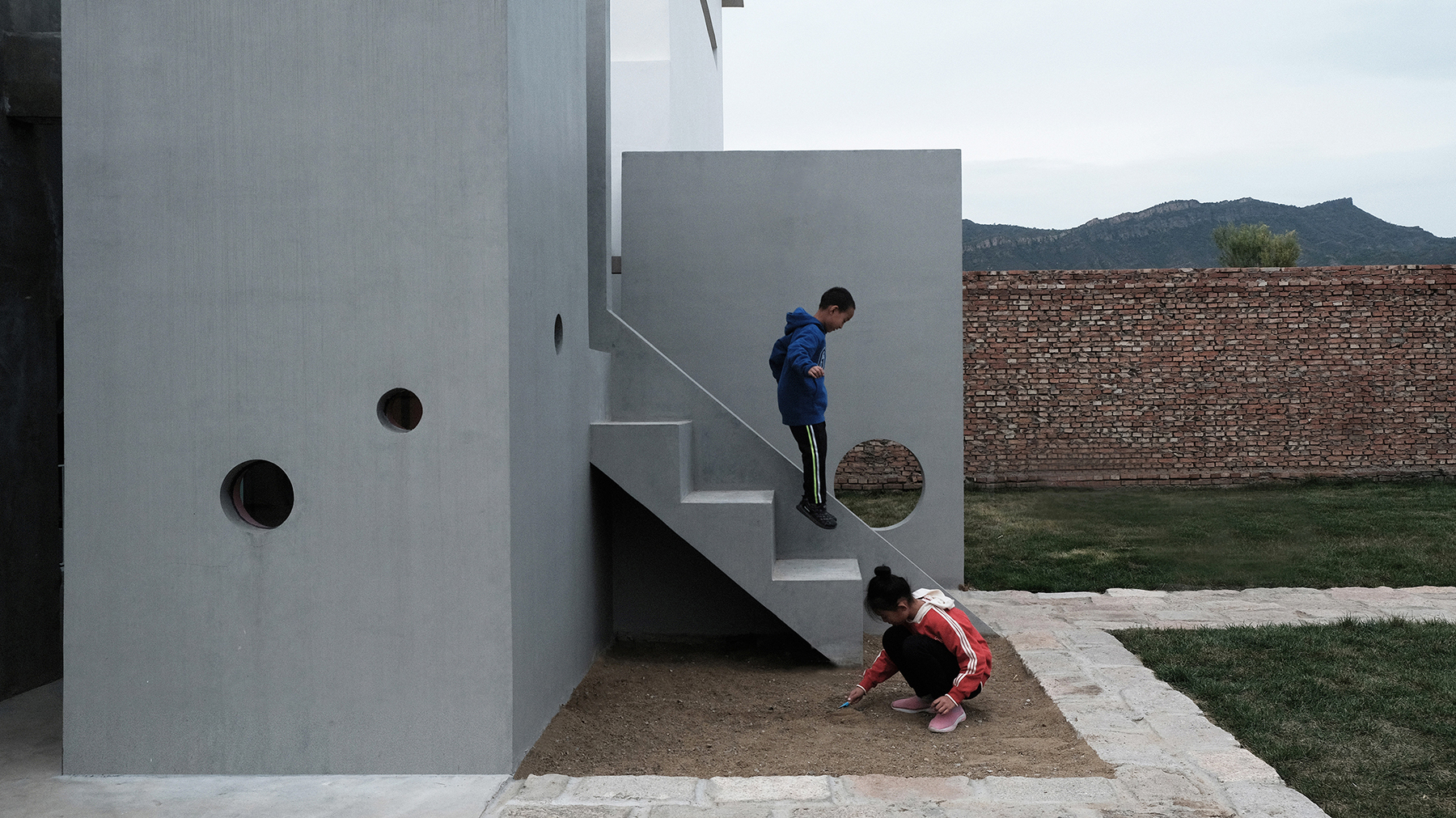
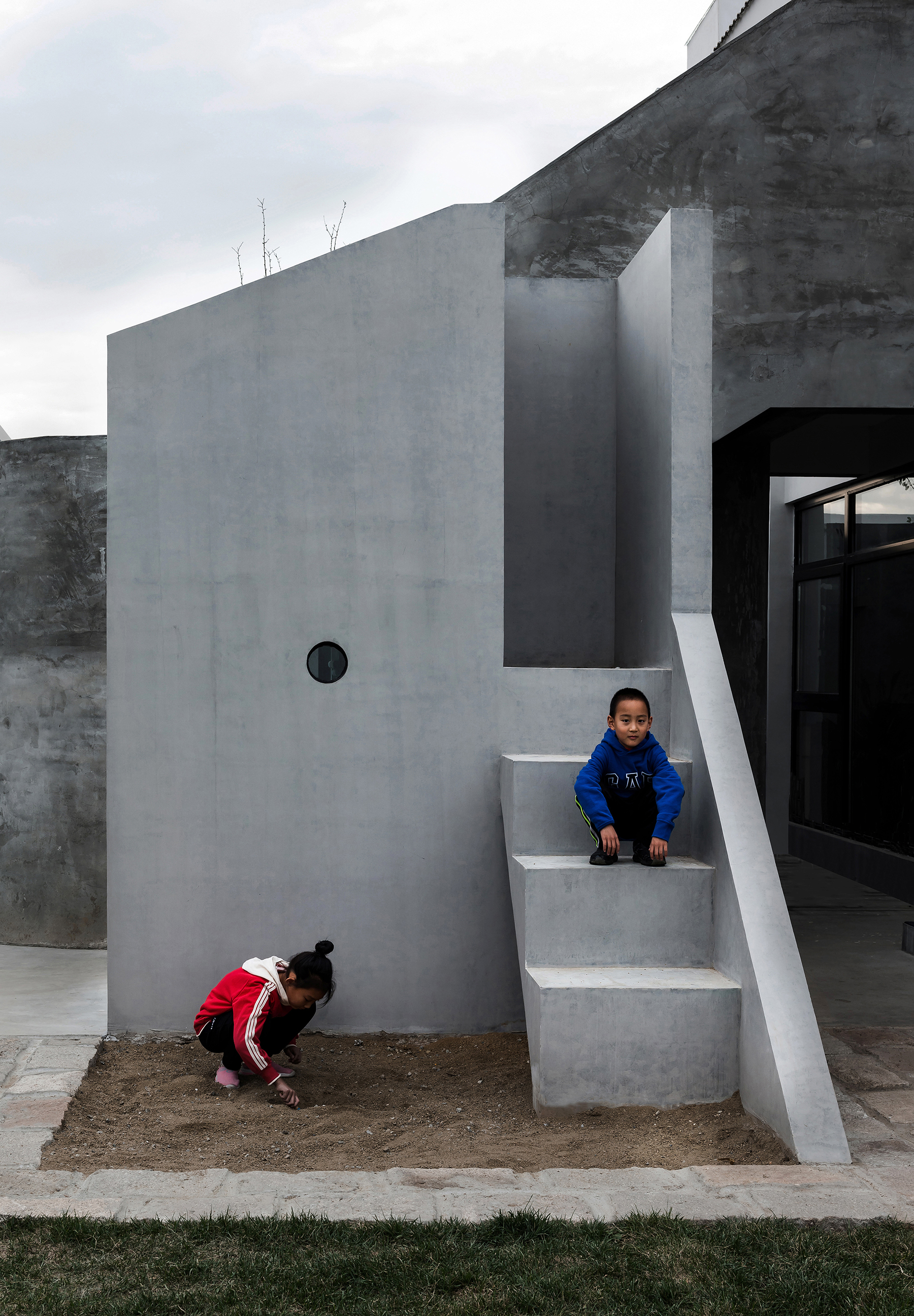
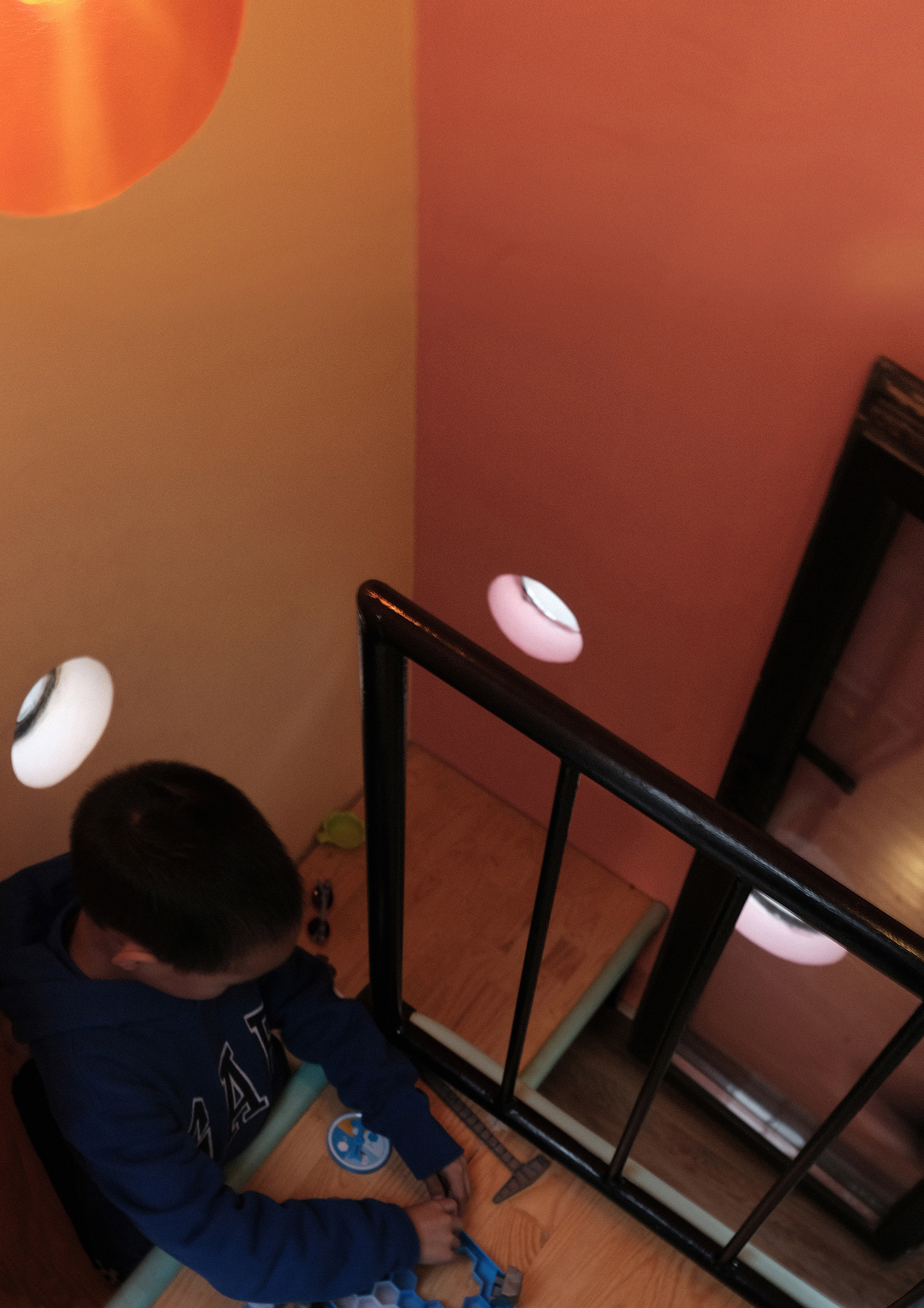
老屋记忆
总有一个线索,在人为建造前,就已贯穿始终。一颗西梅树早在设计介入前就在院子里生长了起来,承载了这家人的记忆,它即成为了设计中最先入手的线索。场地规划中,围绕它而生成的弧墙,水平向展开了地面的空间布局,沿着墙内的弧形阶梯拾级而上展开了垂直向的交通流线。
There is always a clue running through the design long before human constructions. Here before we started, a prune tree, which grew in the courtyard and carried the whole family’s memory, naturally becomes the initial clue of our design. In the site planning, the arc wall around the prune tree horizontally deployed the spatial layout on the ground and the steps of arc stair along the wall developed the vertical circulation.
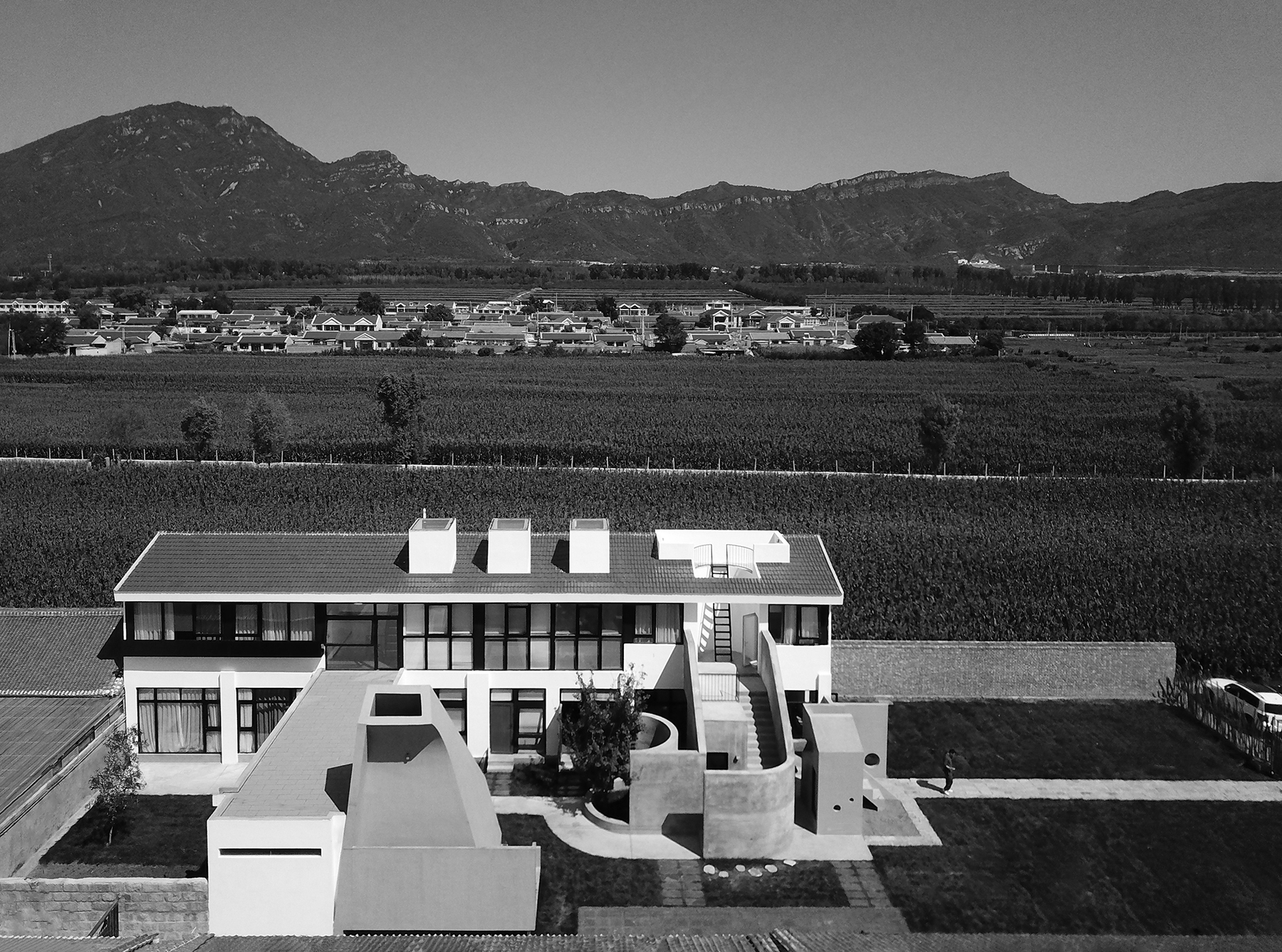
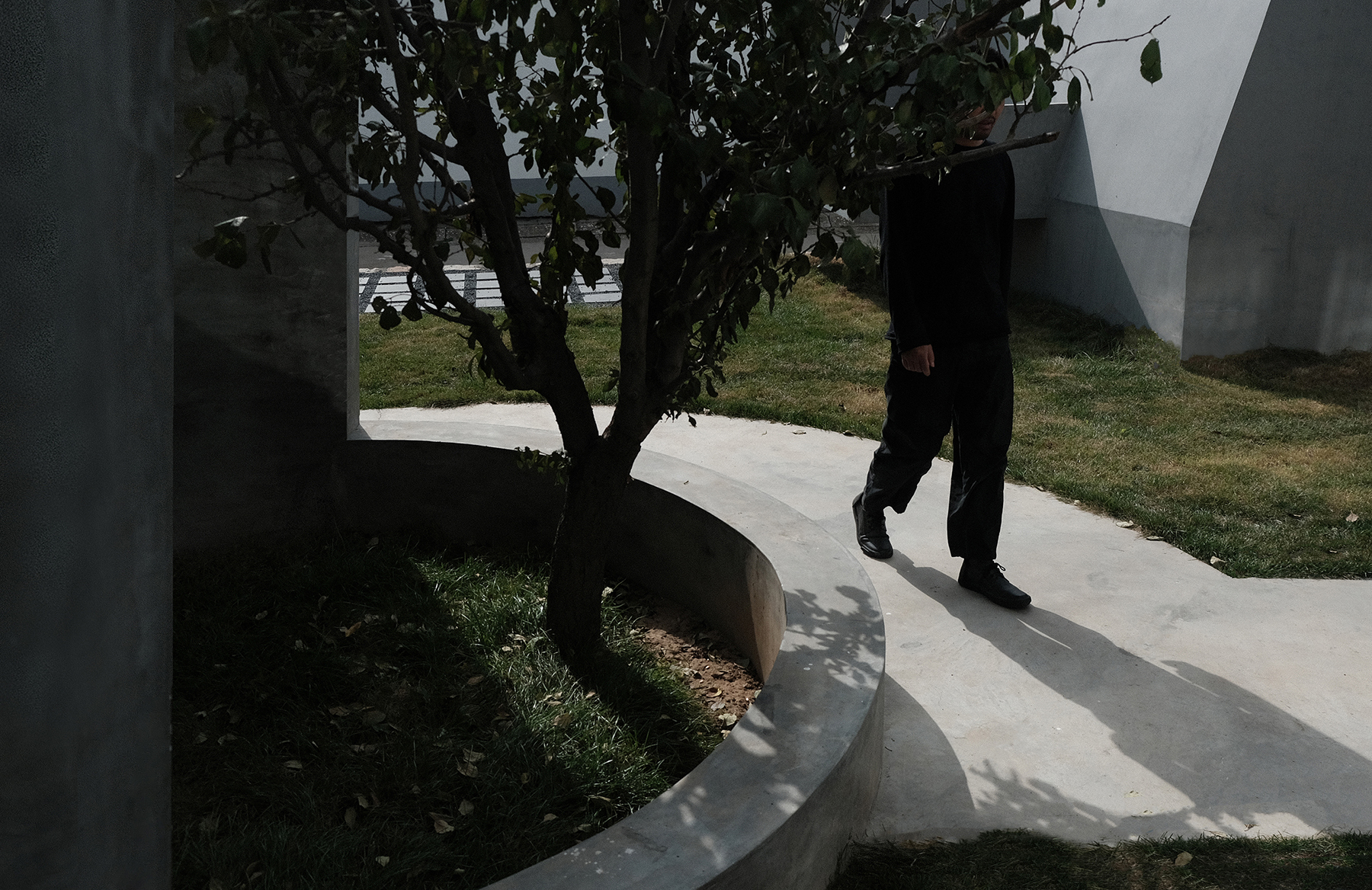
居所
居所区域包含七间客房和一个公共空间。中间区域的三个“光烟囱”从屋顶冒出,暗示了一个逐步上升的内部空间,并在顶部提供了一个向北边山峦远眺的独处场所。位于二层东边的两间客房中间共享一个弧线平台,参观者从西梅树旁沿着一层弧墙向上到达,同时可以通过钢楼梯到达最顶处的露台,登高完成与远山的对话。
The accommodation area contains seven guest rooms with a public area. Three chimneys in the middle stick out from the roof and shape the gradually rising-up spaces, providing places to look far. On the second floor, two rooms on the east share a terrace where guests can step in along the arc wall. Meanwhile, they can arrive at the top-most roof terrace after a steel stair and complete the dialogue to the mountain.
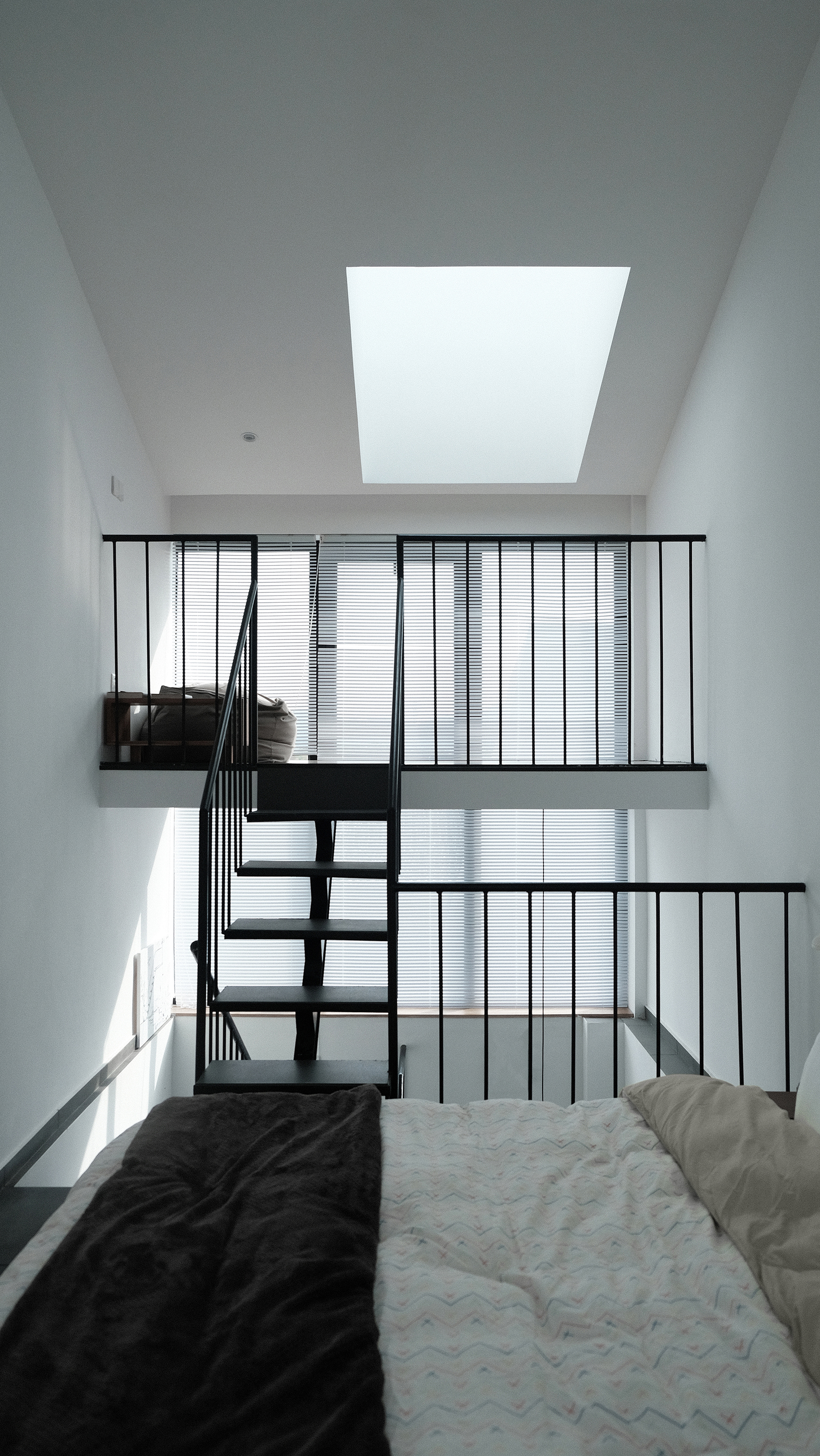
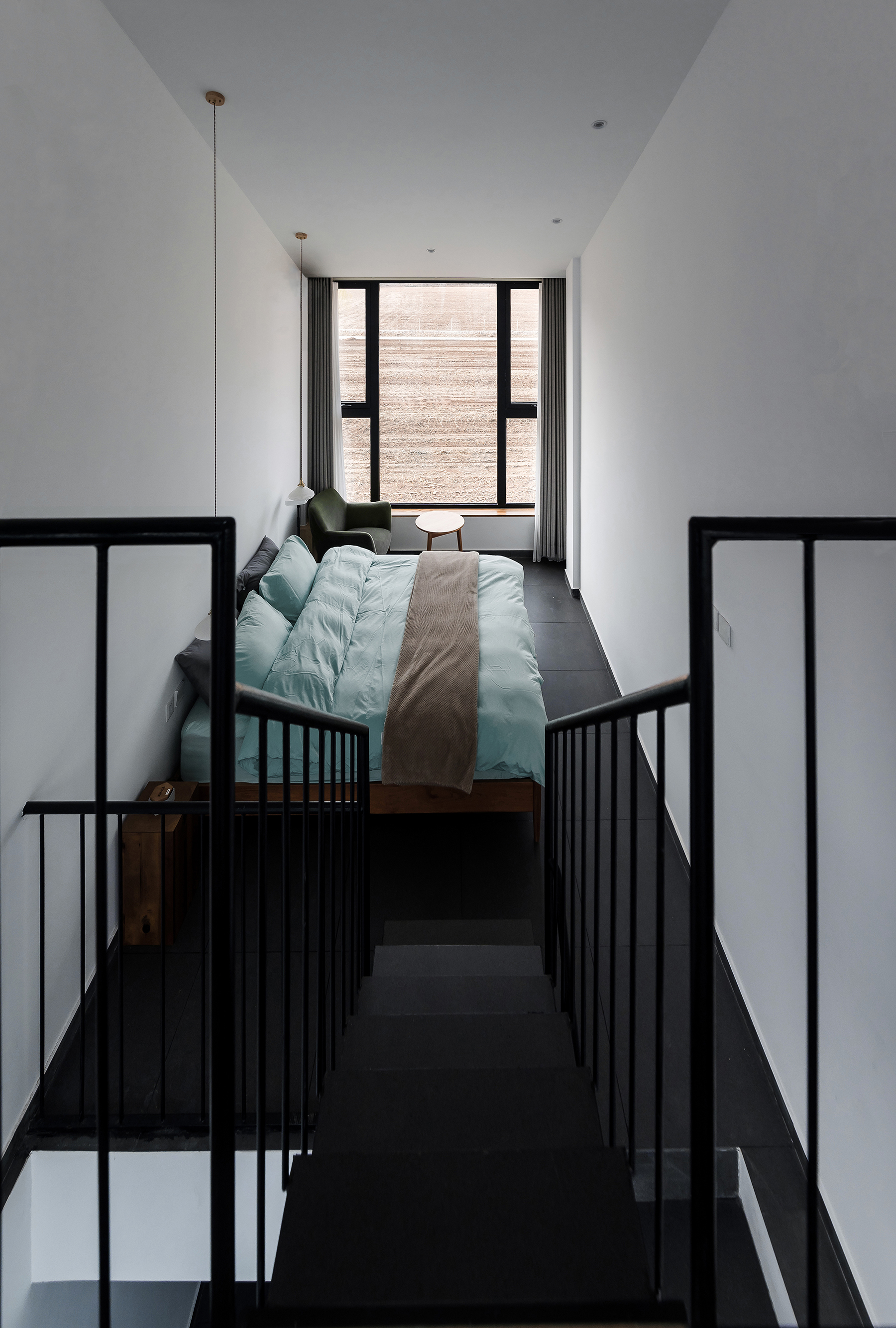
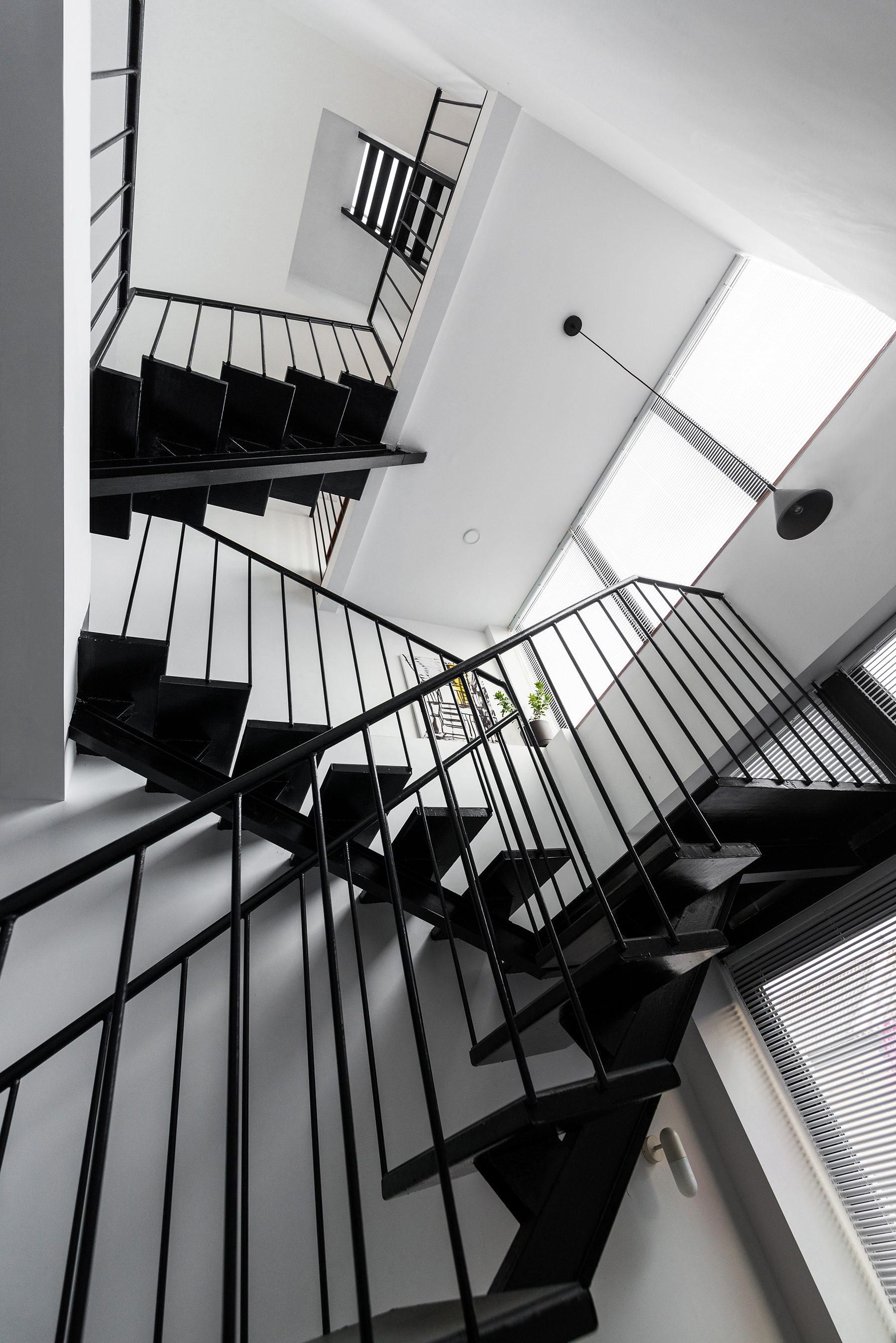
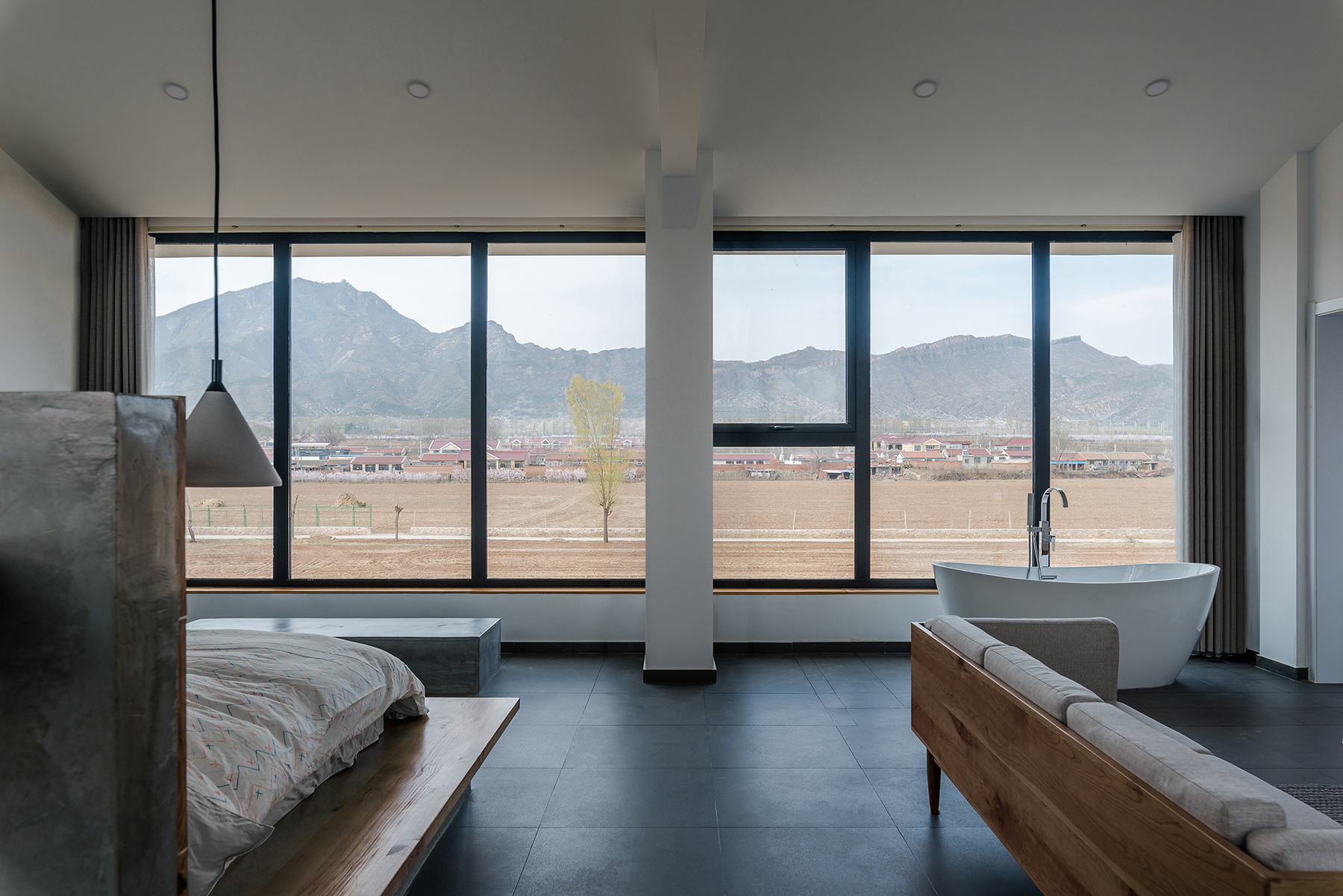
结语
在一部文学作品中,故事的起点和终点于时空中,总是有某种直线或曲线的推进或倒叙,而产生许多不可说的内在含义。而建筑,亦有如此的隐喻。
In a literary work, as the start and end set in time and space, it may be a story narrated in chronological or reverse chronological order with a linear or non-linear manner, producing many unspeakable containing. Architecture, similarly, has such a metaphor.
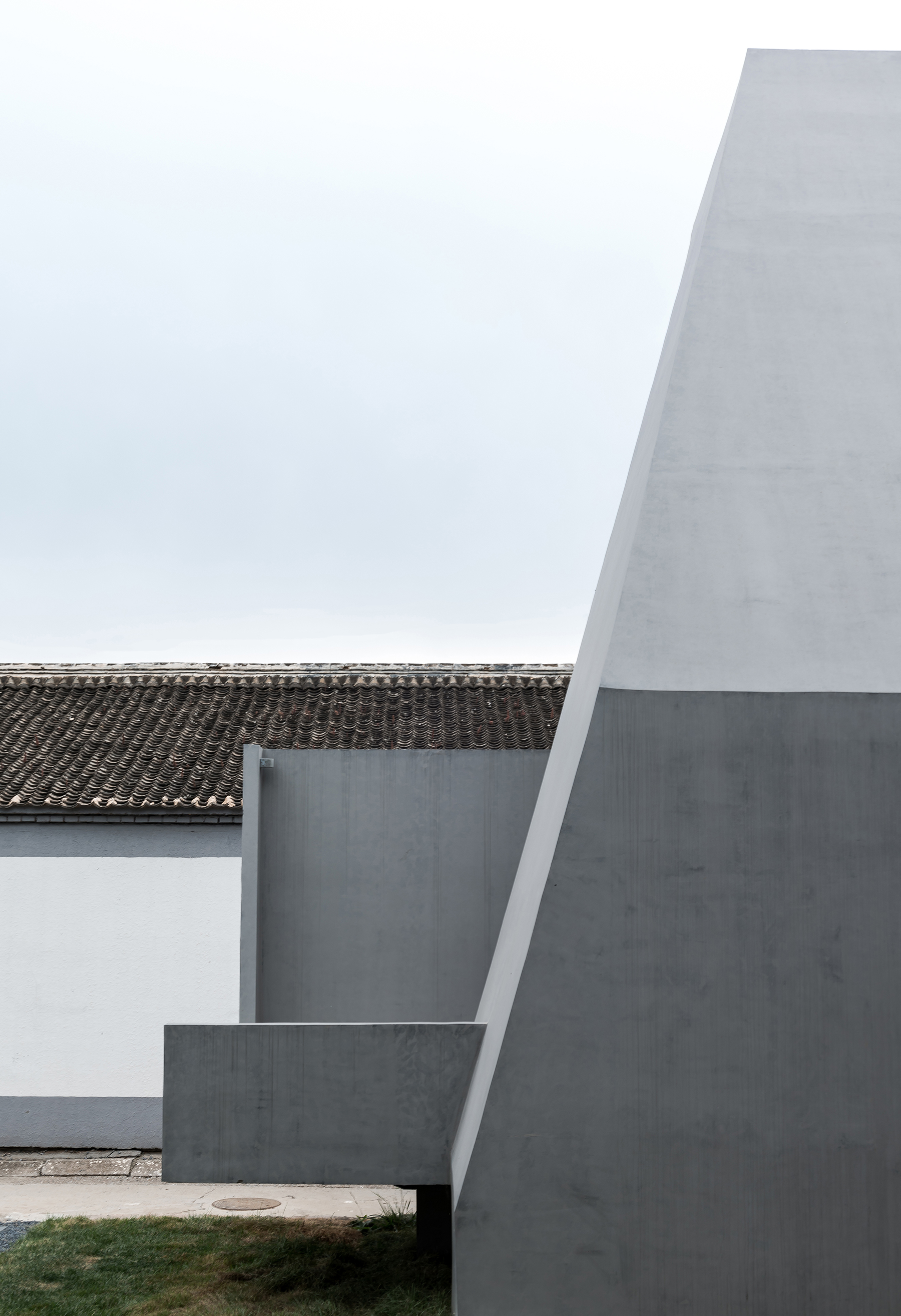
将礼堂视为“终点”,儿童塔作为“起点”。时间阶段上的关于起点与终点的隐喻同时出现于空间线中。在这里,两者的并置隐喻生命中前后时光阶段的相互照看。
Think of the Chapel as the "end point" and the Tower of Childhood as the "starting point". The metaphors about start and end on timeline simultaneously exist on the spatial line. At this point, the co-existence made them reciprocal causation—the mutual caring between the previous and subsequent stages of life.
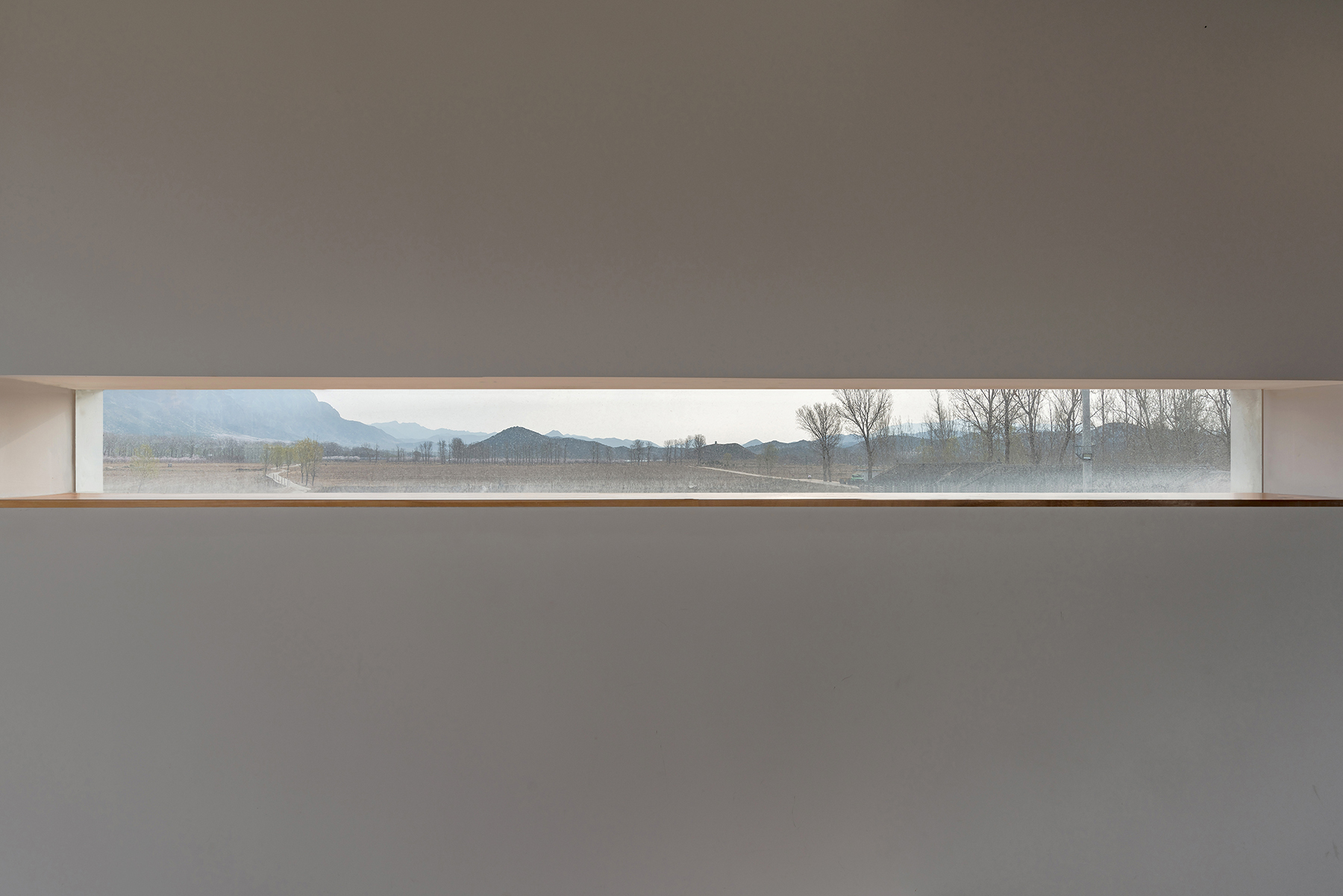
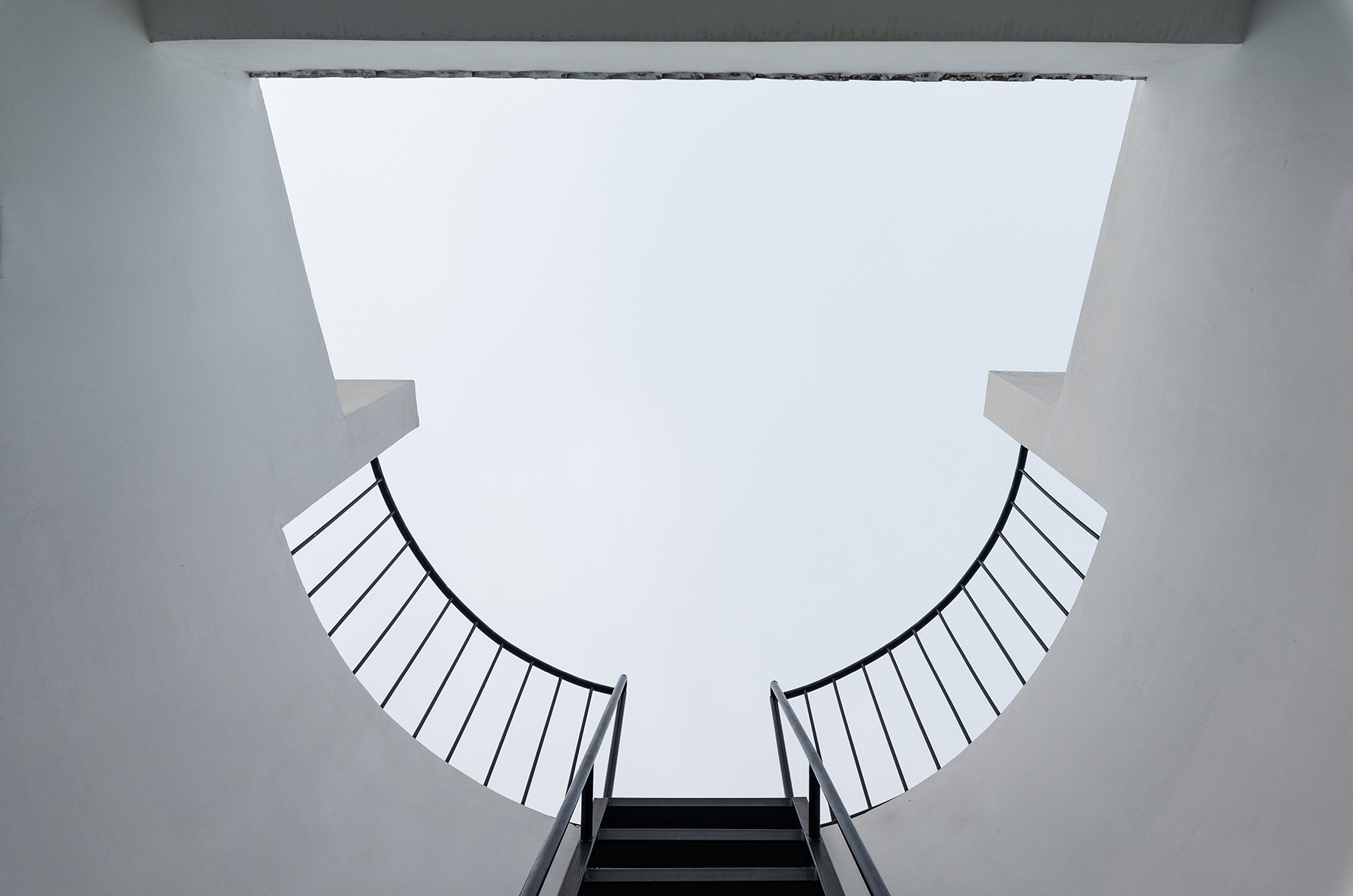
当代消费生活的蓬勃发展,可能也同时带来了人群的失落心情,这也是为什么越来越多的人会去更多的接触乡村和自然——人们都在试图去寻找一些本源。“光”、“雨”、“风”以及从原本而来的“肢体快乐”,这些往往被我们忽视掉的内容,却是打动人心的存在。
With the booming of consumerism, it may also brings us a depressed mood. This is the reason why more and more people are making their way to countryside and nature— they are seeking for some origins. Things like sunlight, rainwater, wind, inner self and those physical joy in the childhood from the bottom heart are easily ignored, but at the end, these are the most touching beings the world could have.
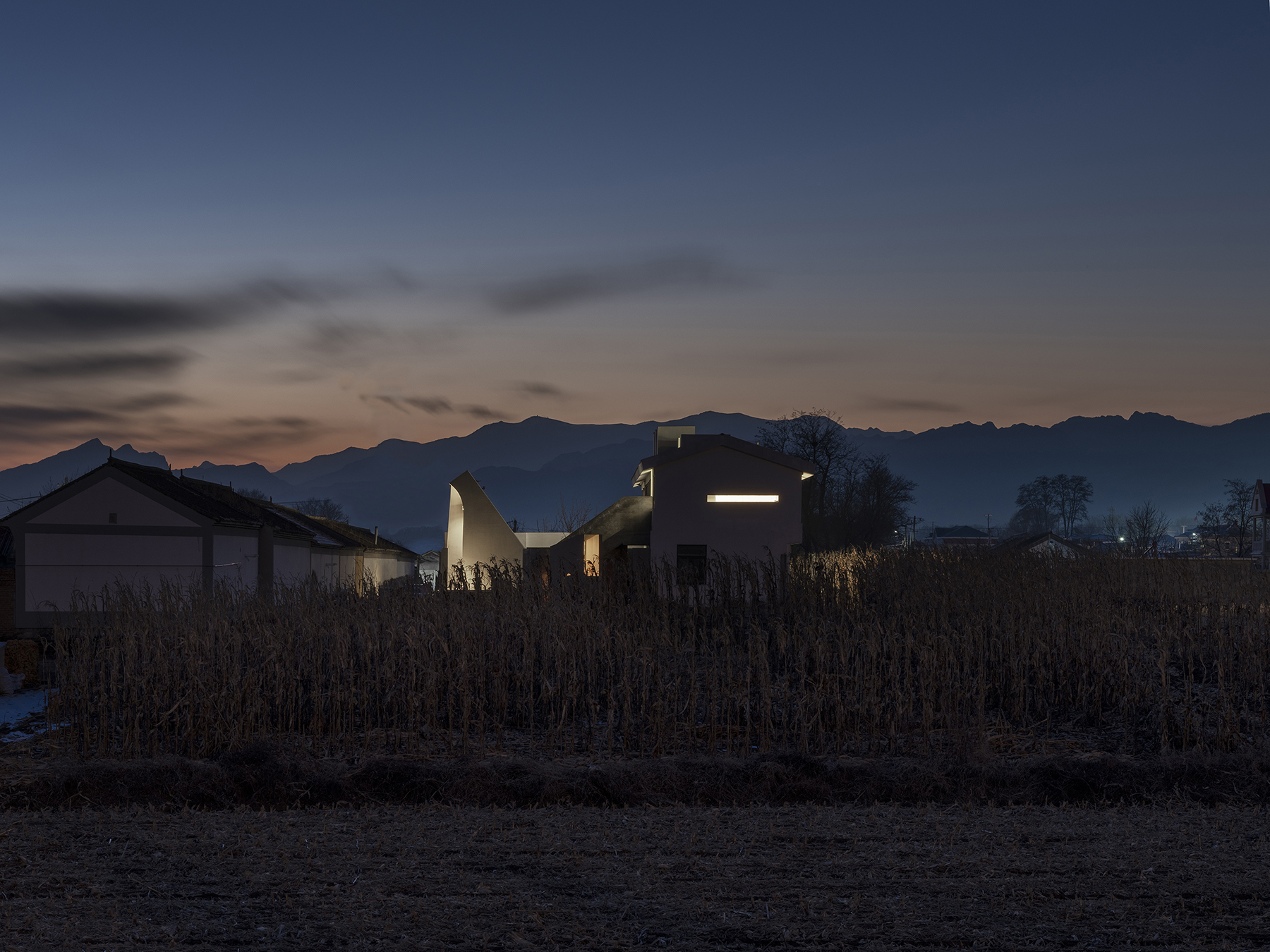
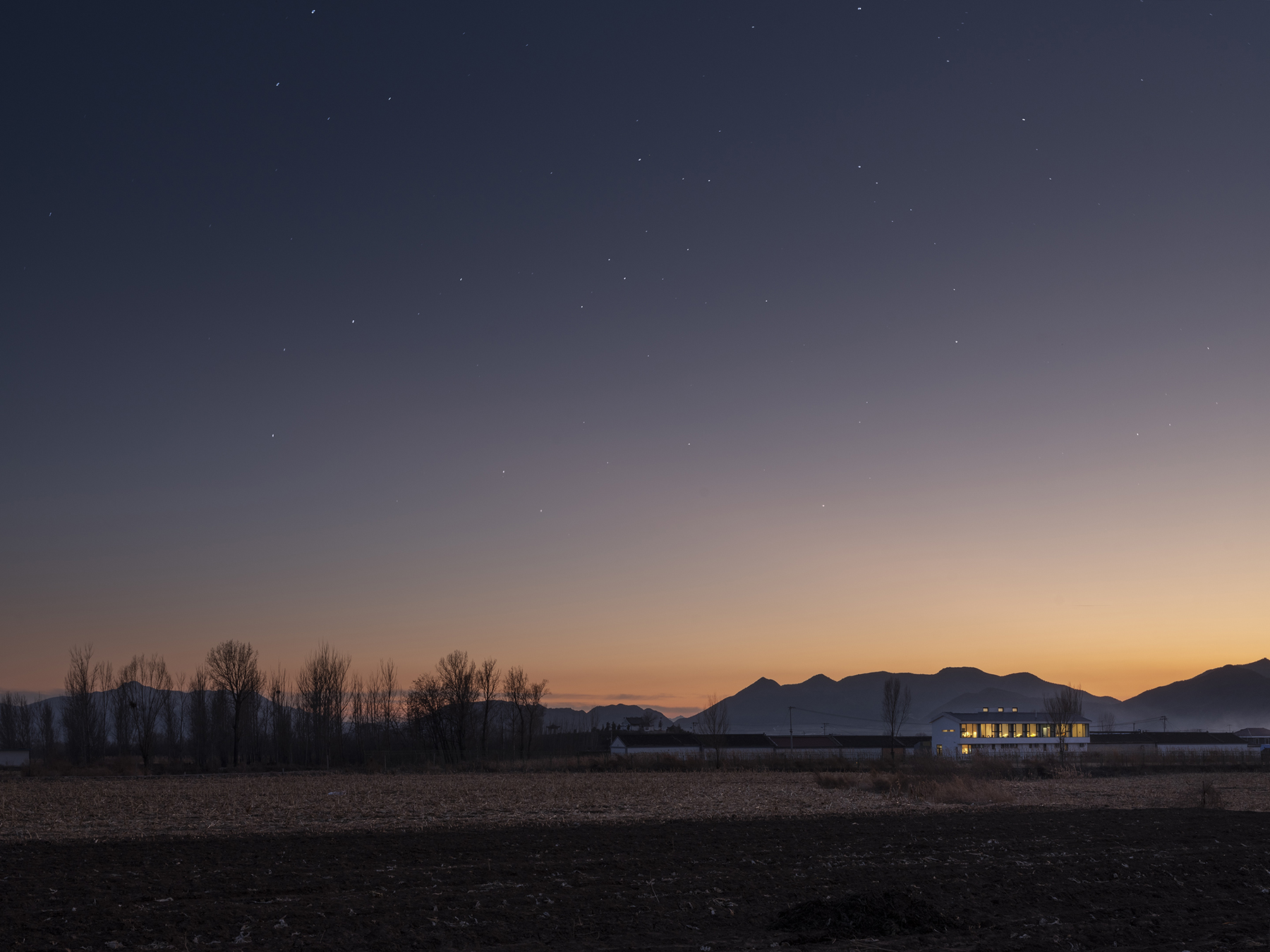
设计图纸 ▽
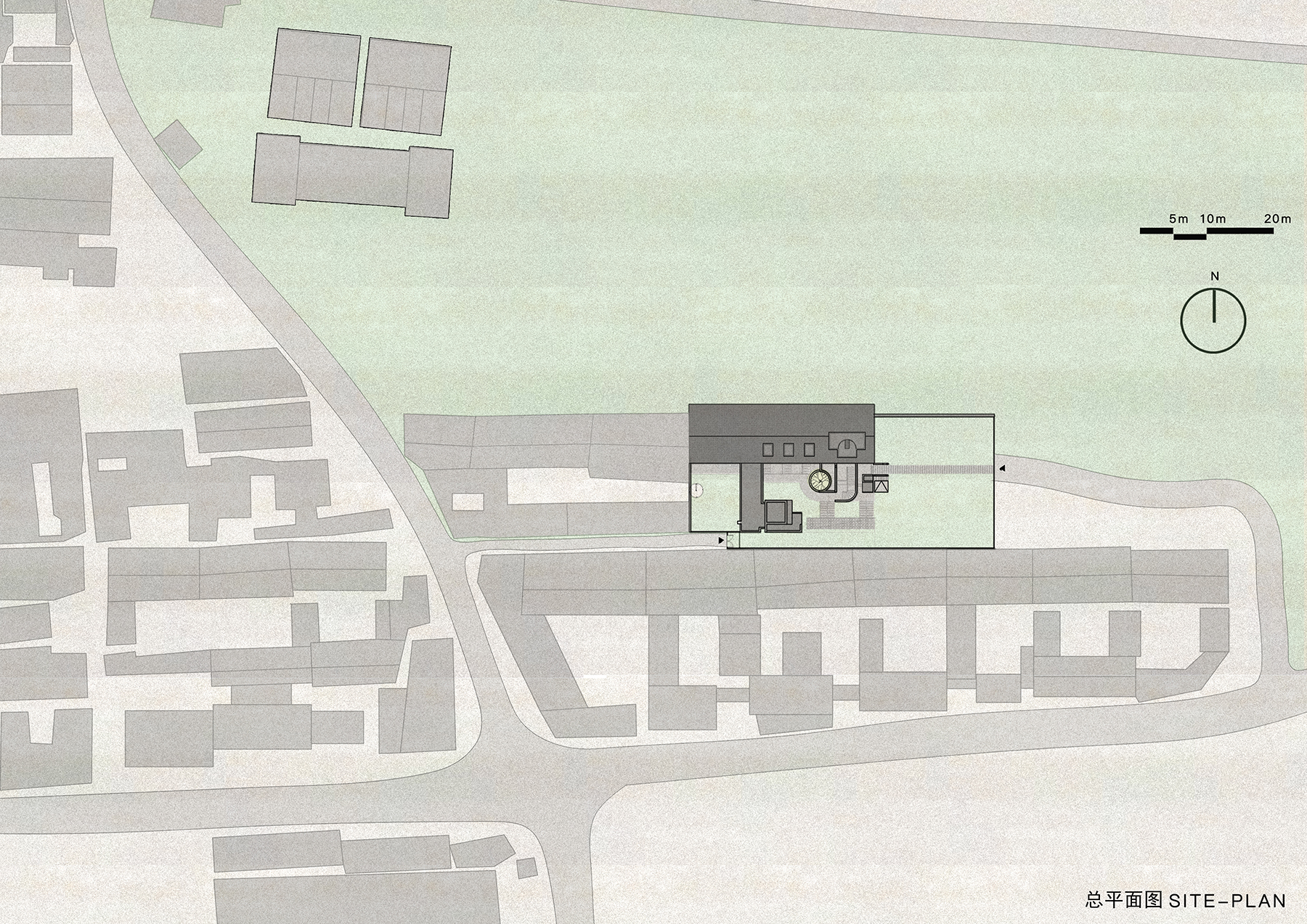
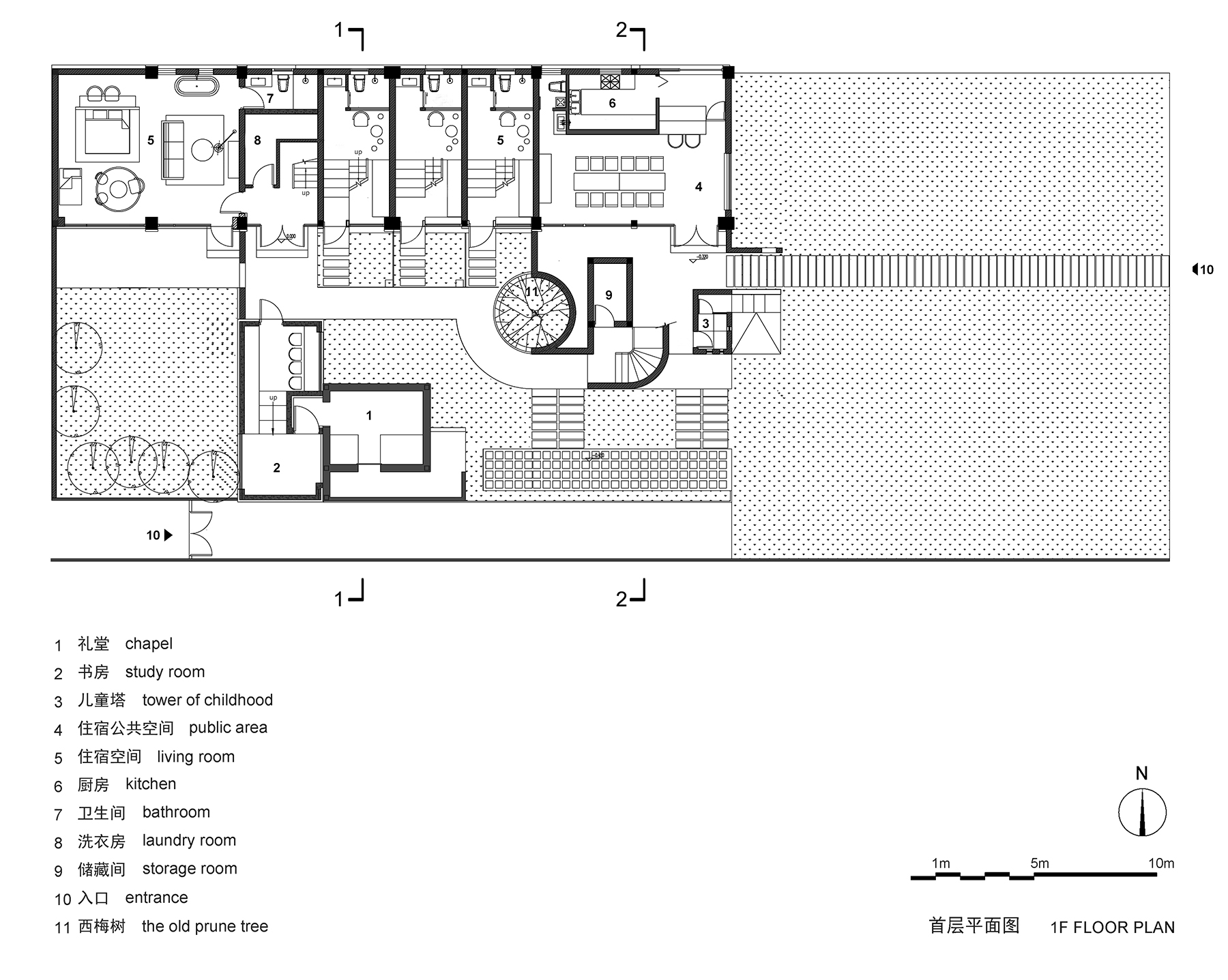
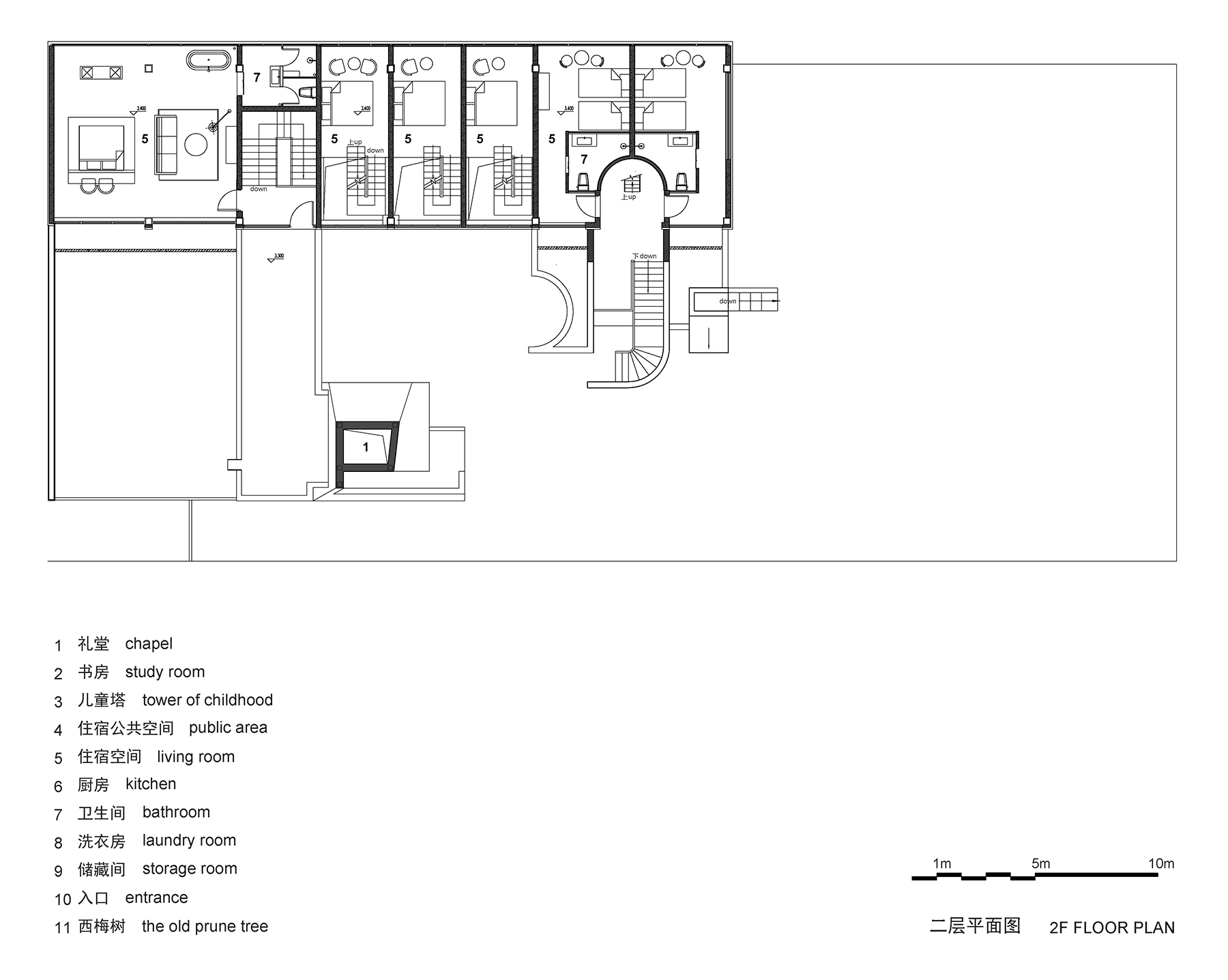
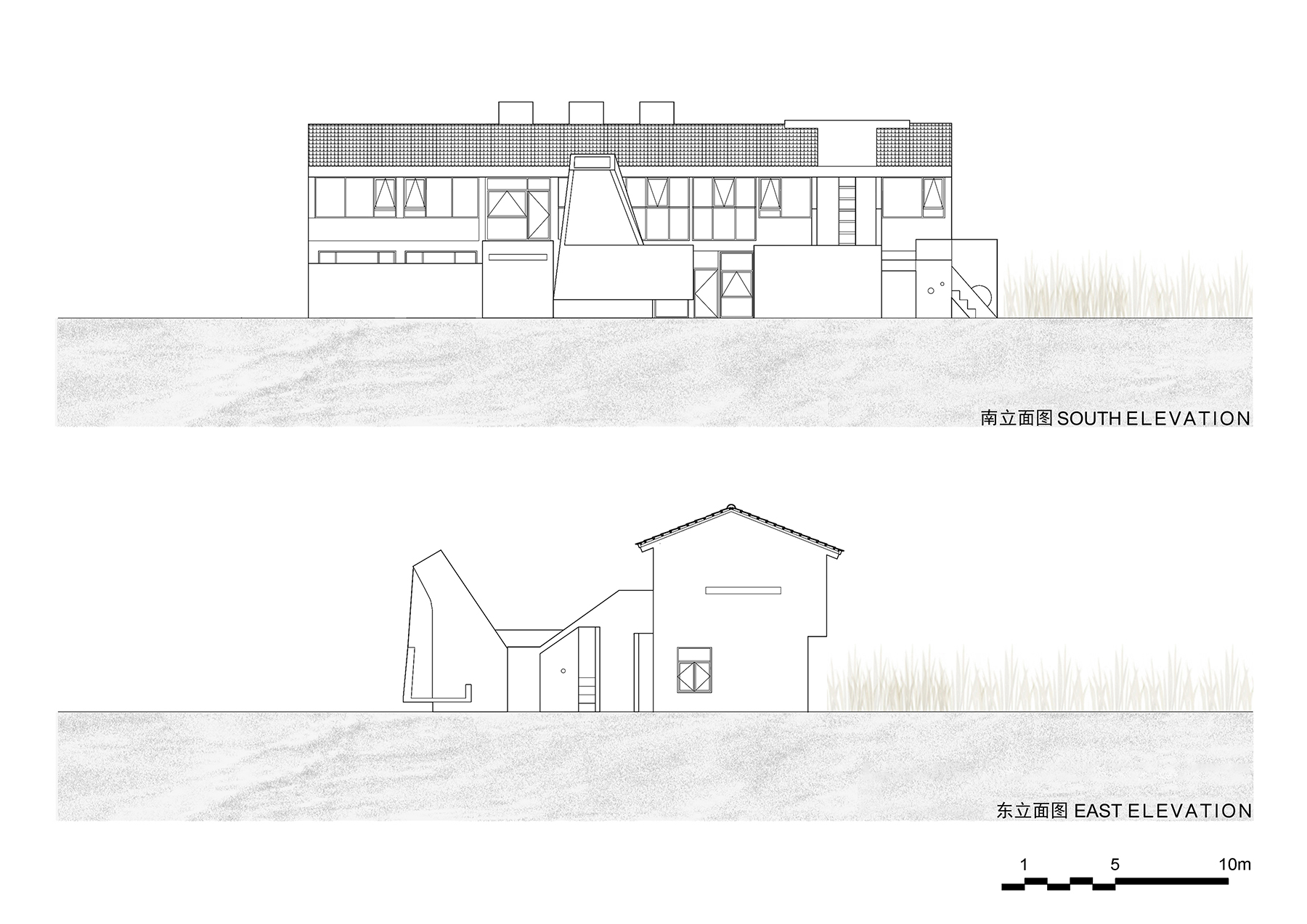
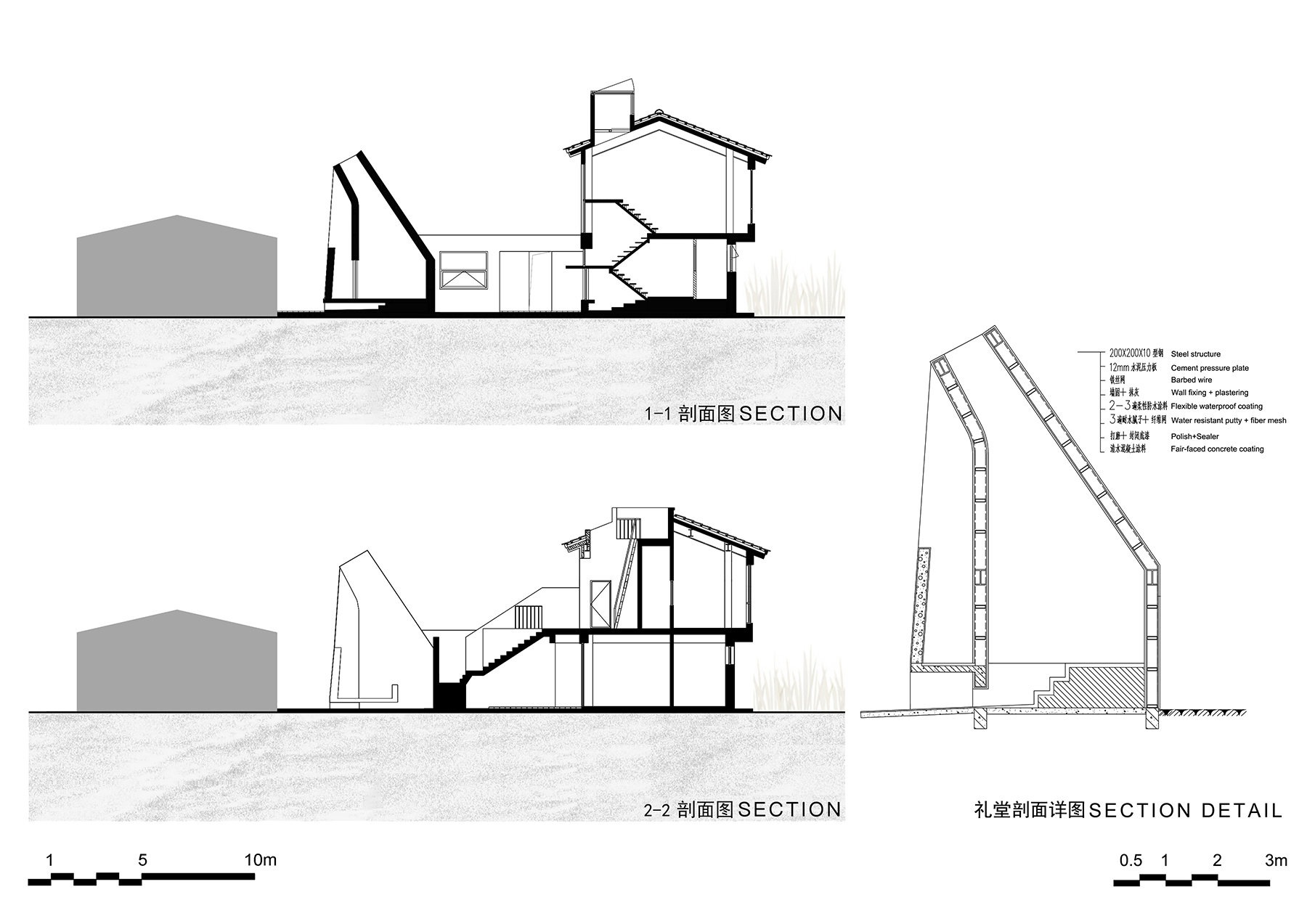

完整项目信息
项目名称:自卑礼堂
项目类型:建筑、景观
项目地点:北京市延庆区香营乡后所屯村五区88号甲
设计单位:礽建筑
事务所网站:www.rengarch.com
主创建筑师:章礽然、施新桐
设计团队:章礽然、施新桐、高云龙、章伟、陈文昕
业主:北京风拾光居旅游发展有限公司
建成状态:建成
设计时间:2018年7月—2019年6月
建设时间:2018年9月—2019年12月
用地面积:640平方米
建筑面积:576平方米
结构设计:章伟
施工:程焕军及其团队
材料:清水混凝土涂料-北京易隆盛兴新型建材有限公司
摄影:吕博、张斌、施新桐、风拾光居
版权声明:本文由礽建筑授权发布。欢迎转发,禁止以有方编辑版本转载。
投稿邮箱:media@archiposition.com
上一篇:中国土家泛博物馆摩霄楼 / 武汉华中科大建筑规划设计研究院
下一篇:深圳红树林湿地博物馆,都市实践中标候选入围方案